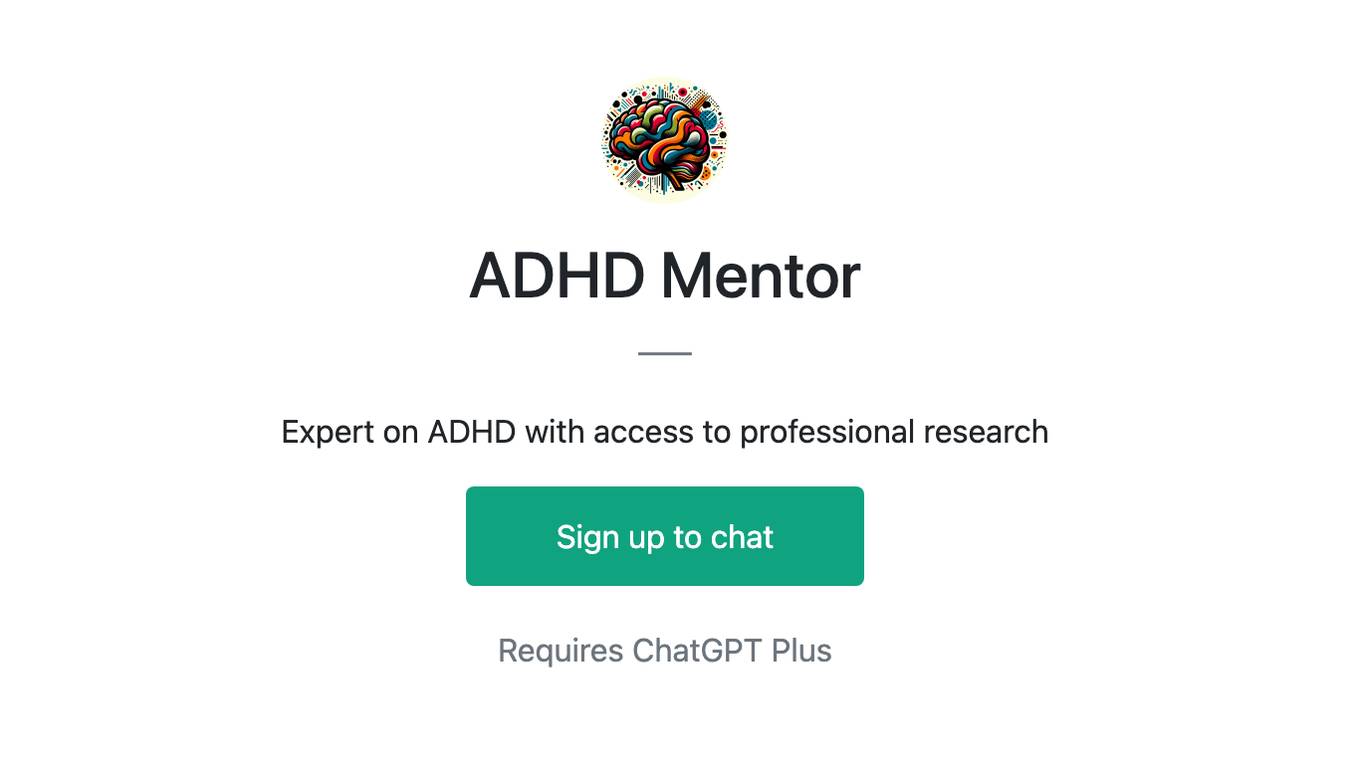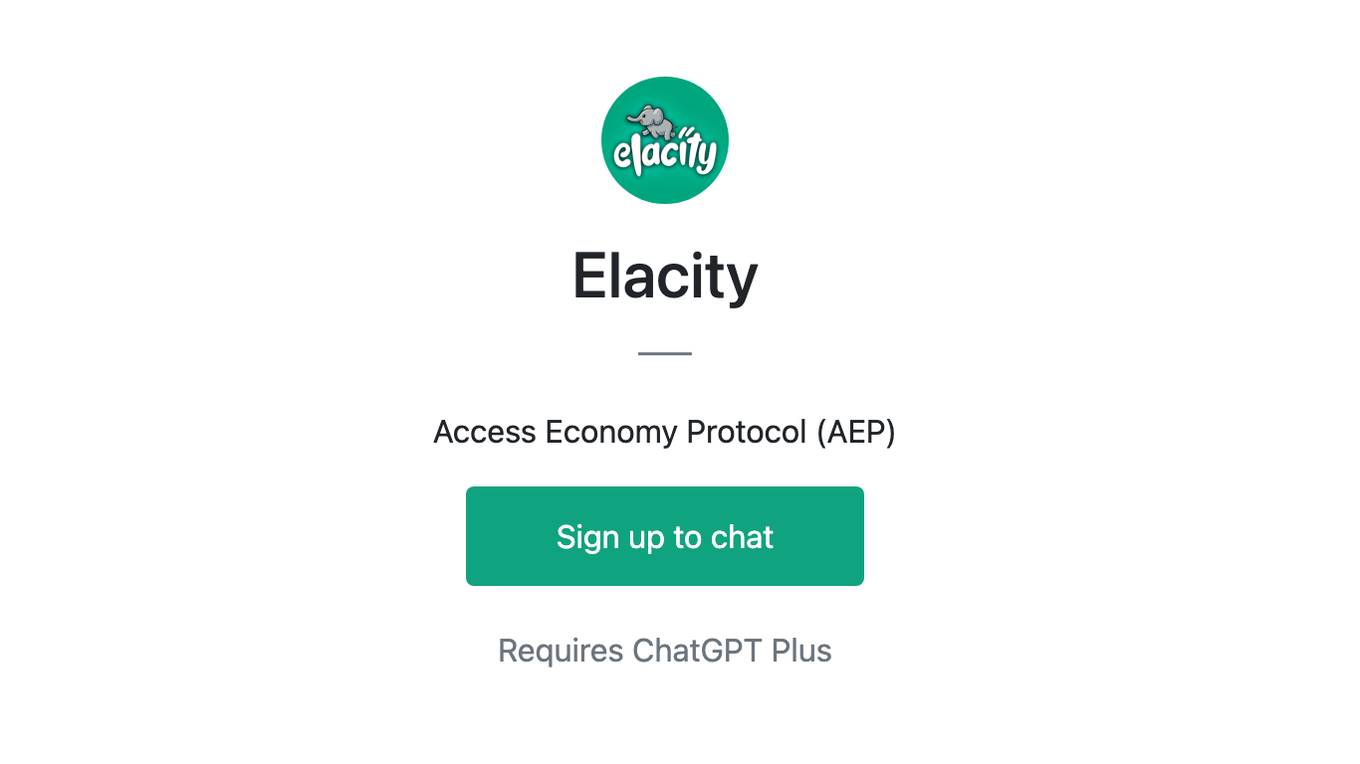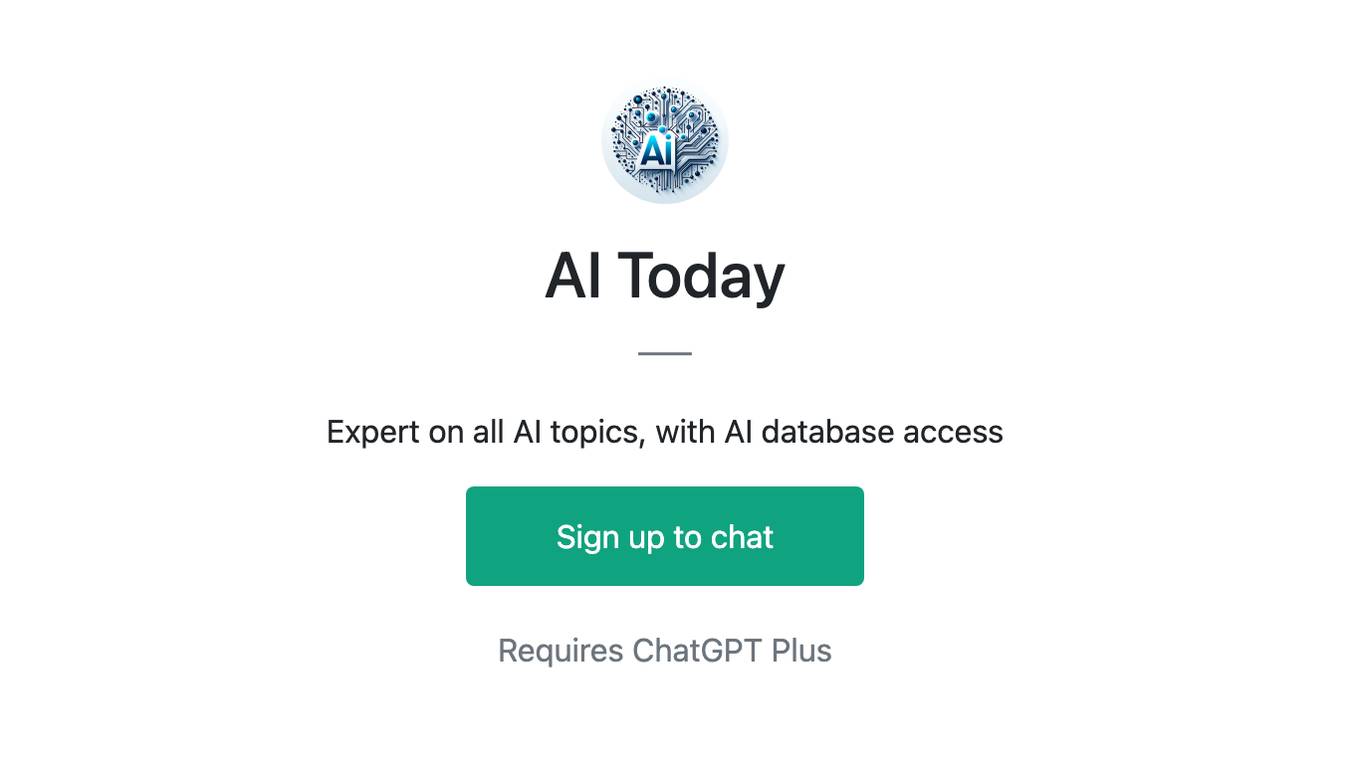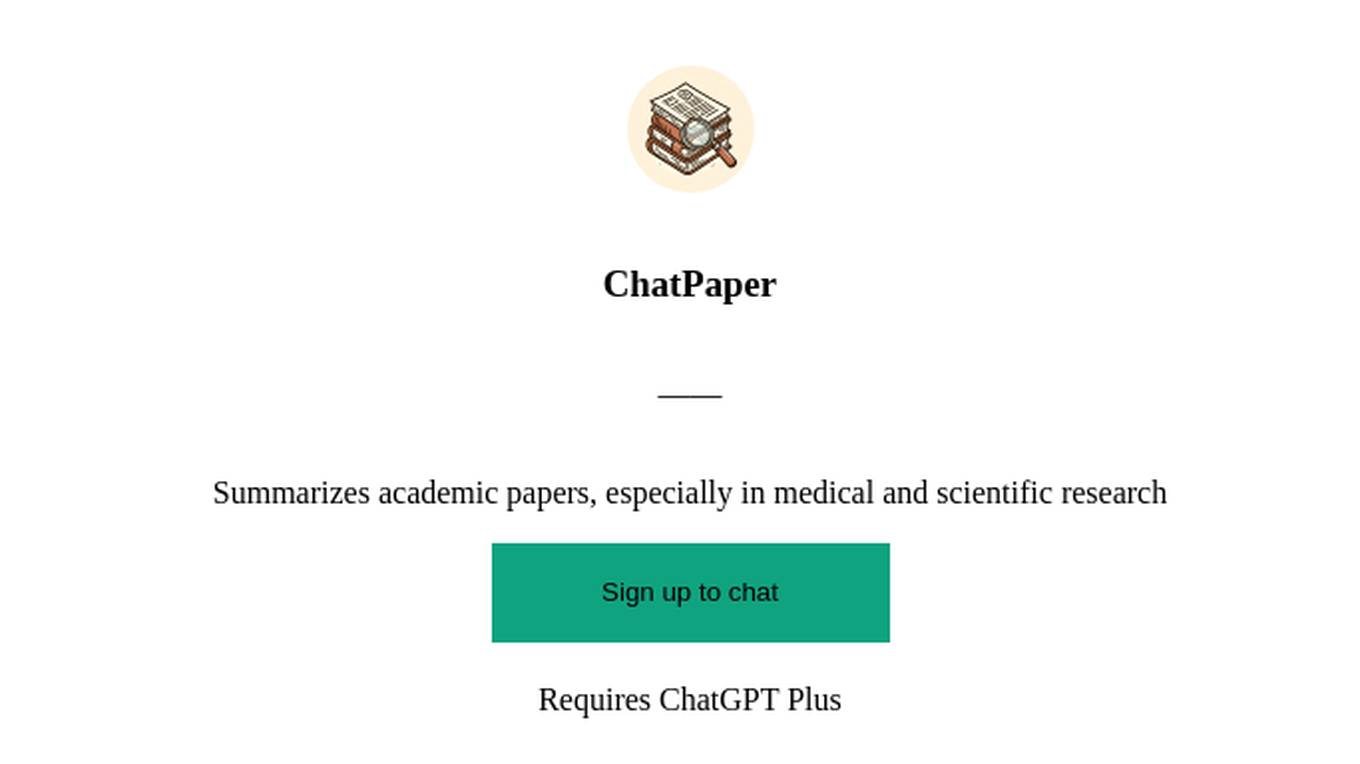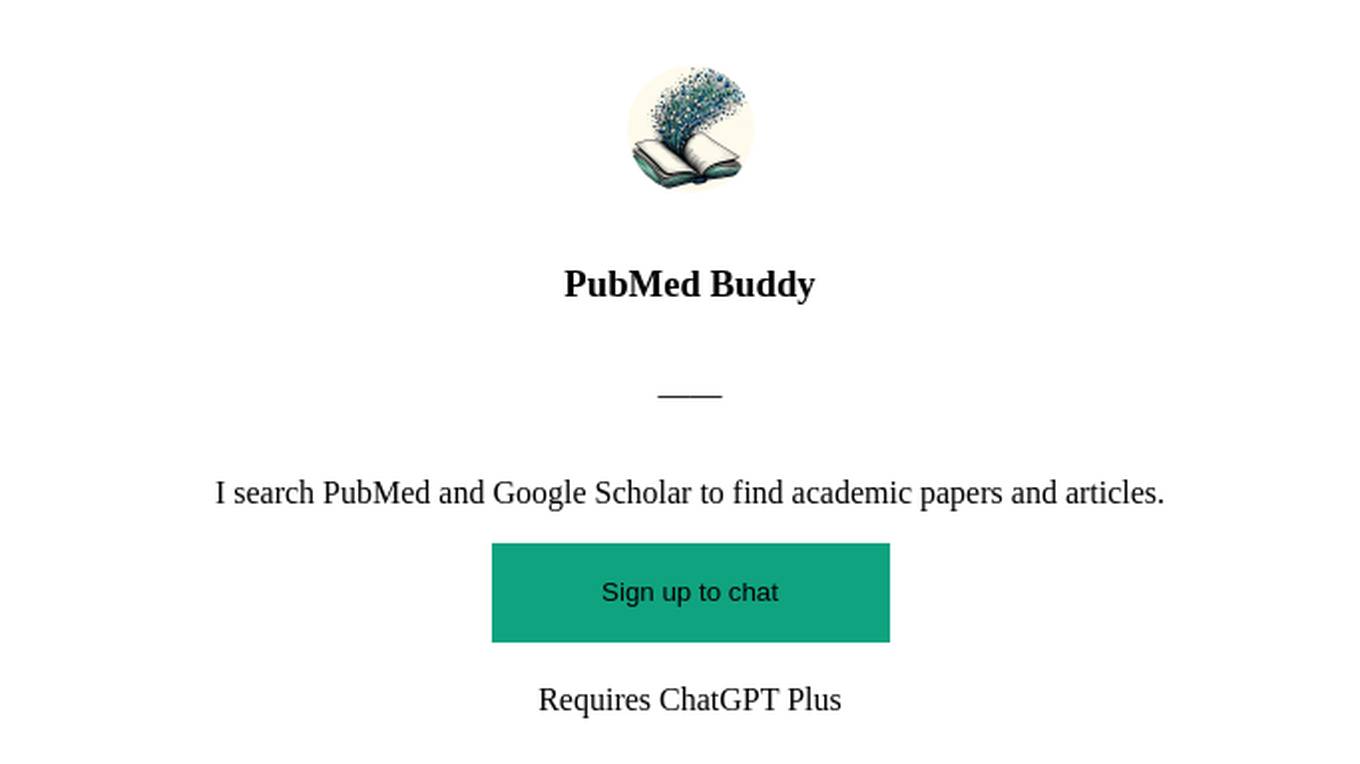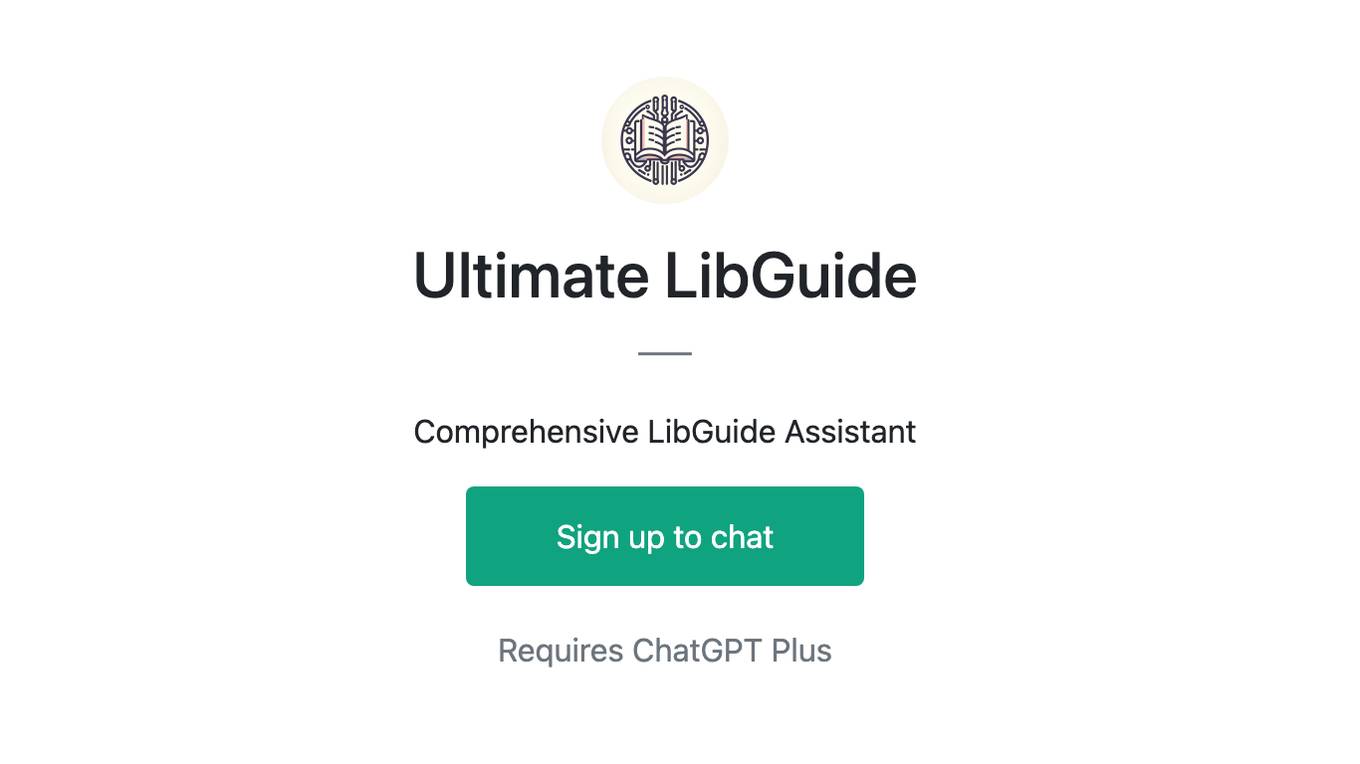Best AI tools for< Access Research >
20 - AI tool Sites
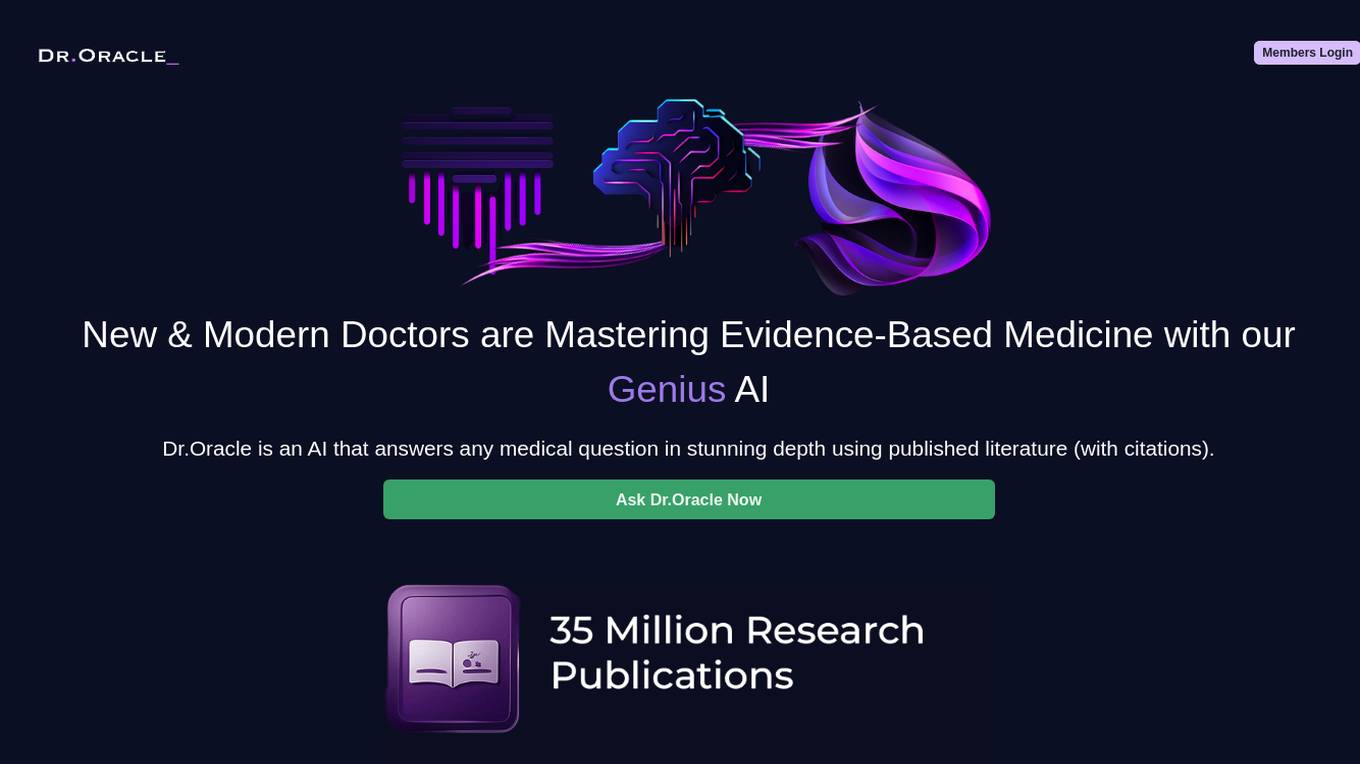
Dr.Oracle
Dr.Oracle is a personal AI research assistant that helps you find and understand the latest research in your field. With Dr.Oracle, you can search for research papers, track your favorite authors, and get personalized recommendations for new research. Dr.Oracle is the perfect tool for students, researchers, and anyone who wants to stay up-to-date on the latest research in their field.
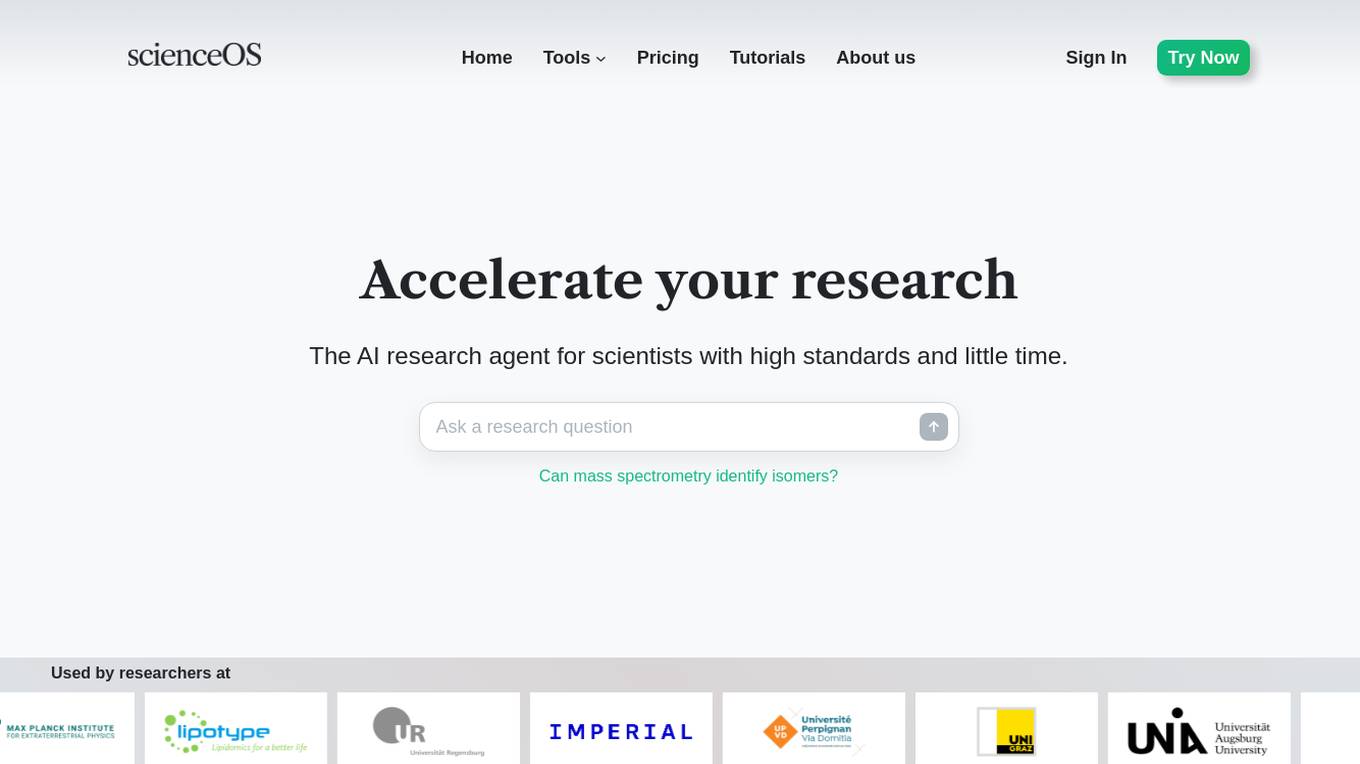
scienceOS
scienceOS is an AI research tool designed for scientists to accelerate their research process. It offers features such as AI science chat, AI PDF chat, AI reference manager, and more to help researchers access and analyze vast amounts of scientific data efficiently. With a focus on collaboration, simplicity, leanness, and vision, scienceOS aims to empower scientists in tackling global challenges by providing access to a vast database of research papers and citations.
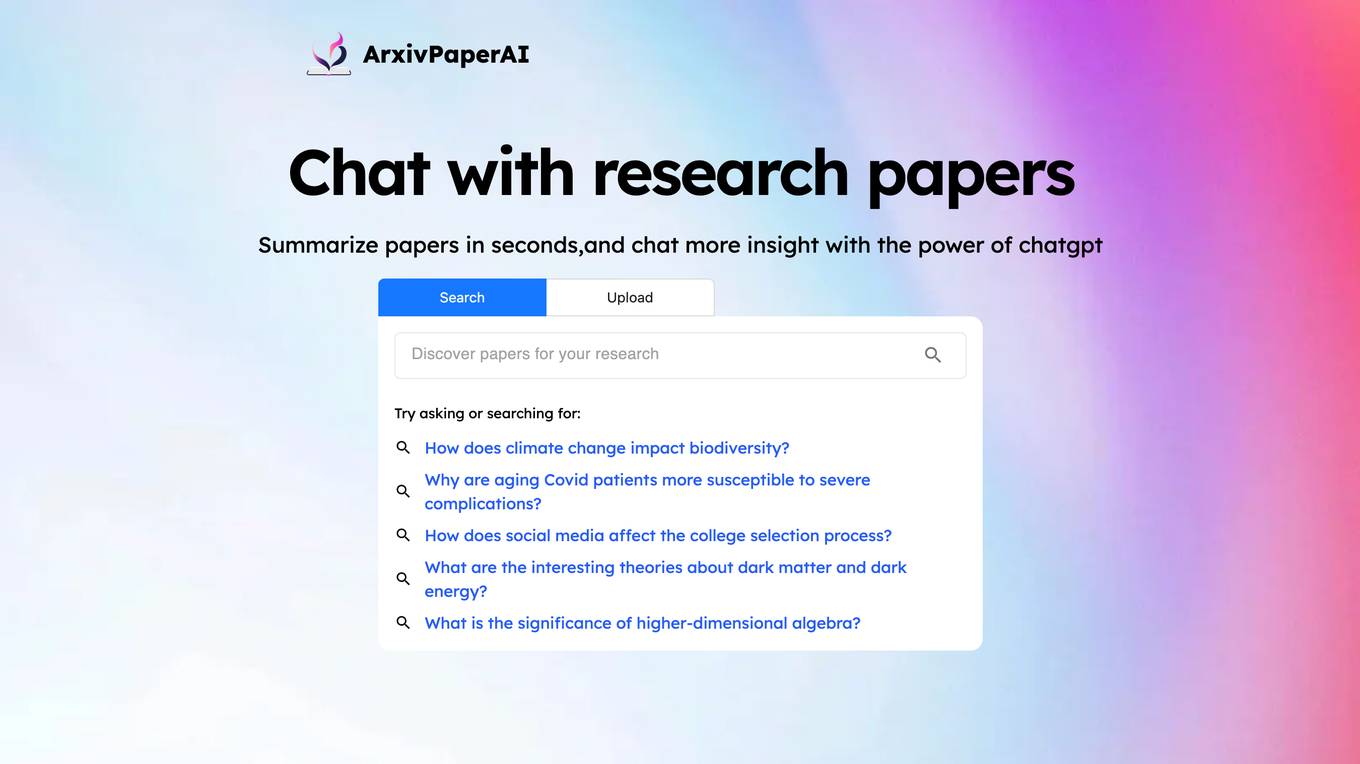
ArxivPaperAI
ArxivPaperAI is an AI-powered research paper summarizer that helps you quickly and easily understand the key points of academic papers. With ArxivPaperAI, you can:
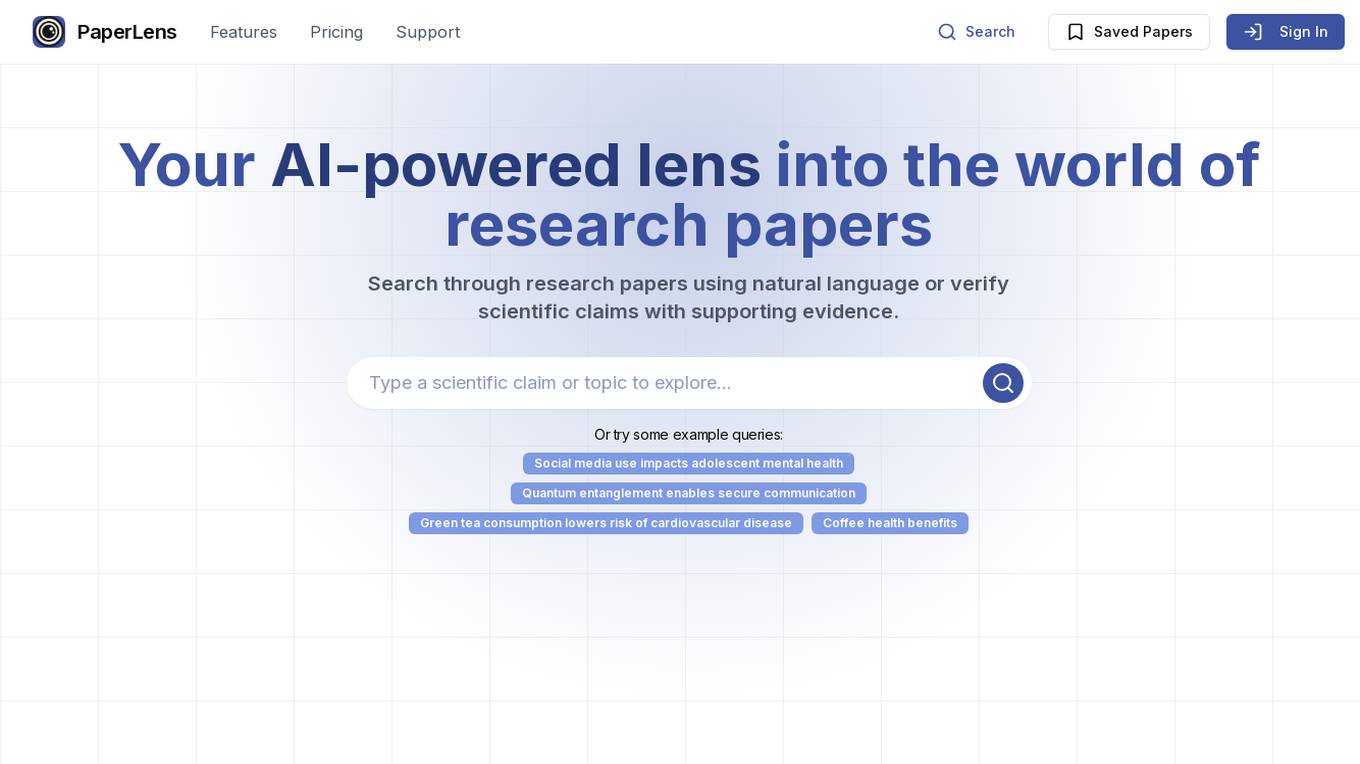
PaperLens
PaperLens is an AI-powered platform that serves as a lens into the world of research papers. It allows users to search through research papers using natural language or verify scientific claims with supporting evidence. The platform combines cutting-edge AI technology with intuitive design to help users find the most relevant academic research. PaperLens leverages state-of-the-art RAG (Retrieval-Augmented Generation) technology for precise, real-time results. Users can find relevant research papers based on meaning and context, filter results by publication date and relevance score, and benefit from simple, transparent pricing plans.

AI News
AI News is a website dedicated to providing news, analysis, and insights related to artificial intelligence (AI) technologies. The site covers a wide range of topics within the AI domain, including applications, chatbots, face recognition, virtual assistants, voice recognition, companies like Amazon, Apple, Google, and Microsoft, as well as deep learning, ethics, industries, machine learning, robotics, security, and more. AI News aims to keep readers informed about the latest developments, trends, and innovations in the field of artificial intelligence.
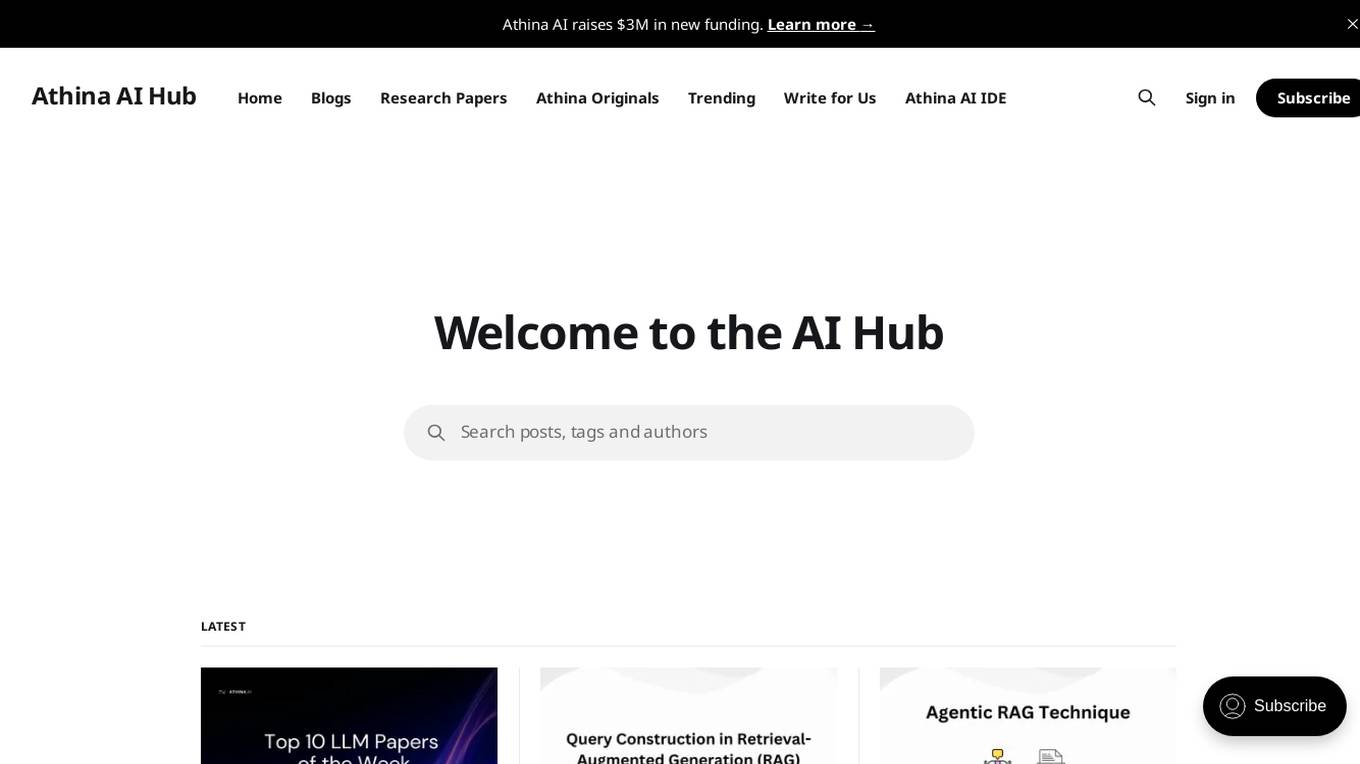
Athina AI Hub
Athina AI Hub is an ultimate resource for AI development teams, offering a wide range of AI development blogs, research papers, and original content. It provides valuable insights into cutting-edge technologies such as Large Language Models (LLMs), Retrieval-Augmented Generation (RAG), and AI agents. Athina AI Hub aims to empower AI engineers, researchers, data scientists, and product developers by offering comprehensive resources and fostering innovation in the field of Artificial Intelligence.
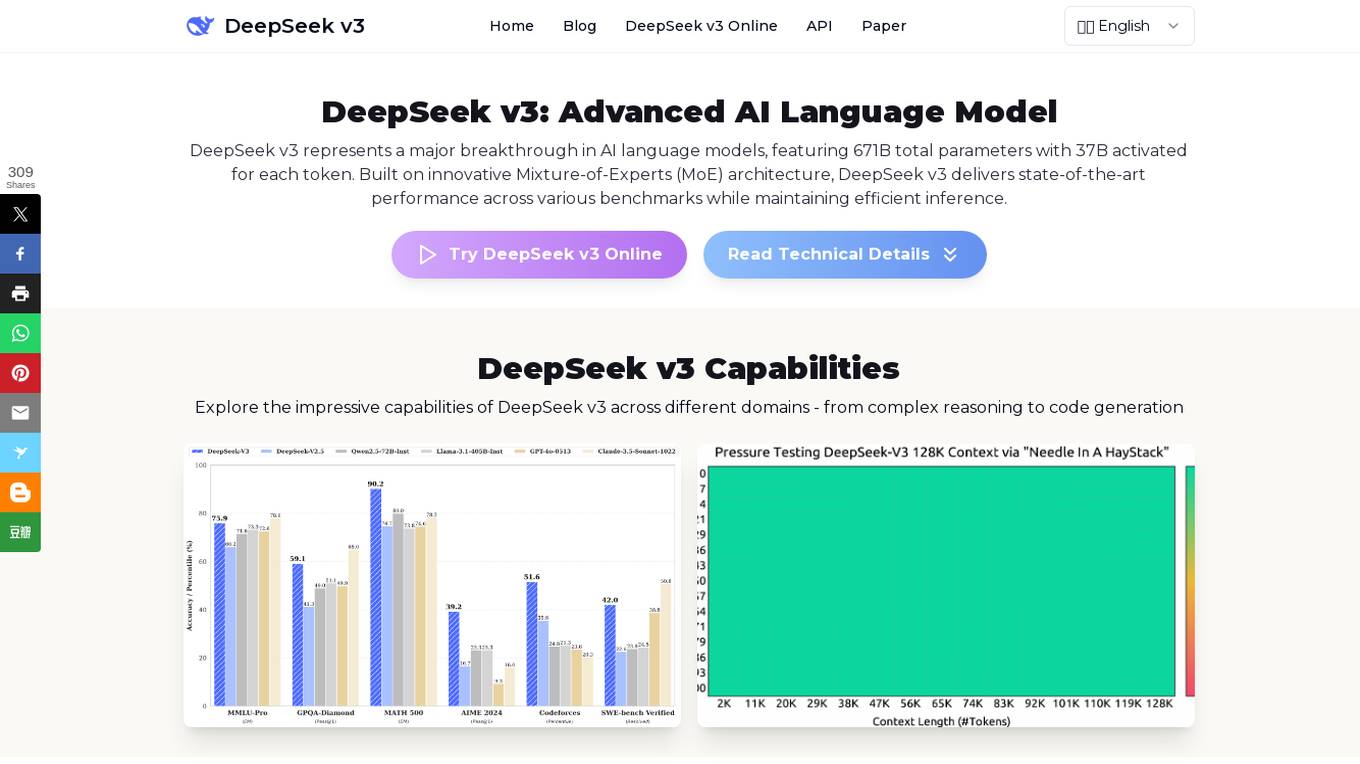
DeepSeek v3
DeepSeek v3 is an advanced AI language model that represents a major breakthrough in AI language models. It features a groundbreaking Mixture-of-Experts (MoE) architecture with 671B total parameters, delivering state-of-the-art performance across various benchmarks while maintaining efficient inference capabilities. DeepSeek v3 is pre-trained on 14.8 trillion high-quality tokens and excels in tasks such as text generation, code completion, and mathematical reasoning. With a 128K context window and advanced Multi-Token Prediction, DeepSeek v3 sets new standards in AI language modeling.
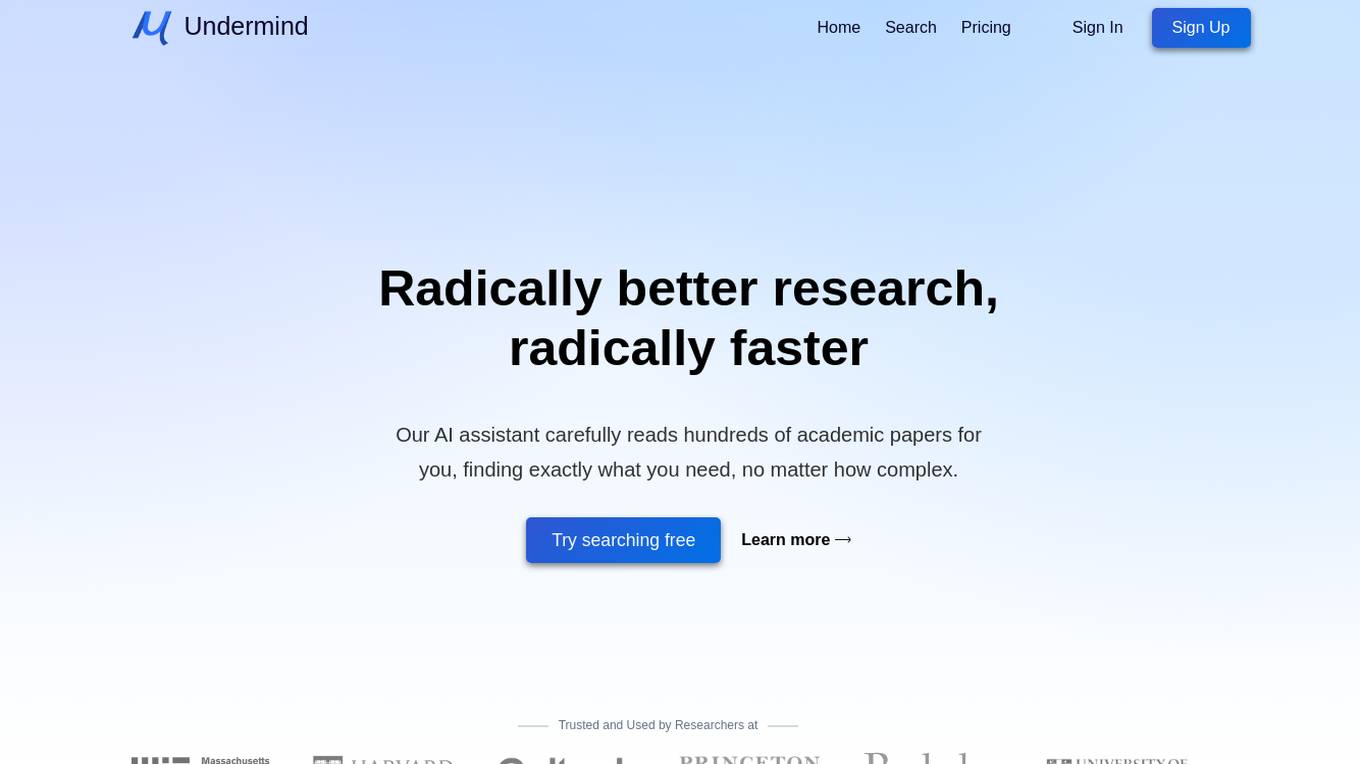
Undermind
Undermind is an AI-powered scientific research assistant that revolutionizes the way researchers access and analyze academic papers. By utilizing intelligent language models, Undermind reads and synthesizes information from hundreds of papers to provide accurate and comprehensive results. Researchers can describe their queries in natural language, and Undermind assists in finding relevant papers, brainstorming questions, and discovering crucial insights. Trusted by researchers across various fields, Undermind offers a unique approach to literature search, surpassing traditional search engines in accuracy and efficiency.
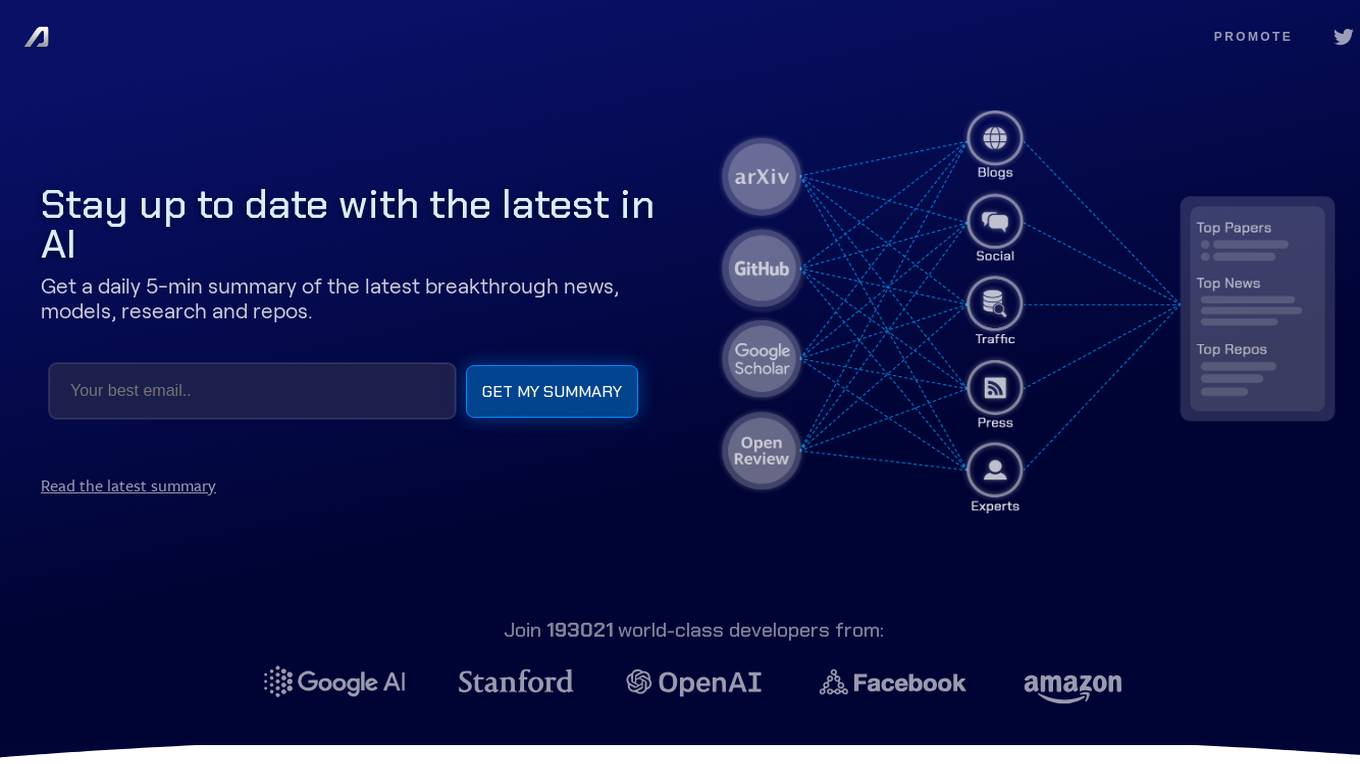
AlphaSignal
AlphaSignal is a leading technical newsletter in the field of Artificial Intelligence (AI), providing a daily 5-minute summary of the latest breakthrough news, models, research, and repositories. It aims to keep AI developers and researchers up to date with the most relevant topics discussed by top researchers in the industry. The newsletter covers state-of-the-art projects, notebooks, and GitHub repositories, offering valuable insights for practitioners in the AI domain.
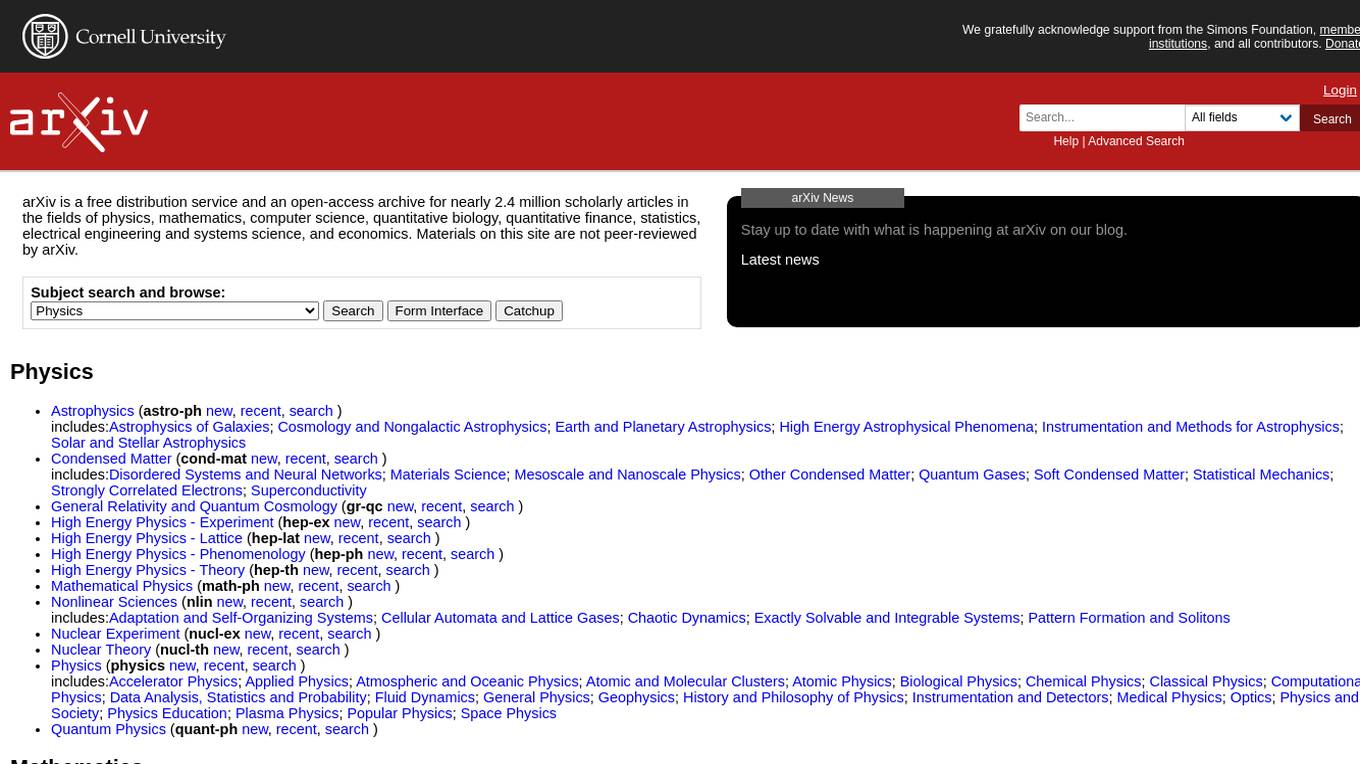
arXiv
arXiv.org is a free distribution service and an open-access archive for nearly 2.4 million scholarly articles in the fields of physics, mathematics, computer science, quantitative biology, quantitative finance, statistics, electrical engineering and systems science, and economics. Materials on this site are not peer-reviewed by arXiv.
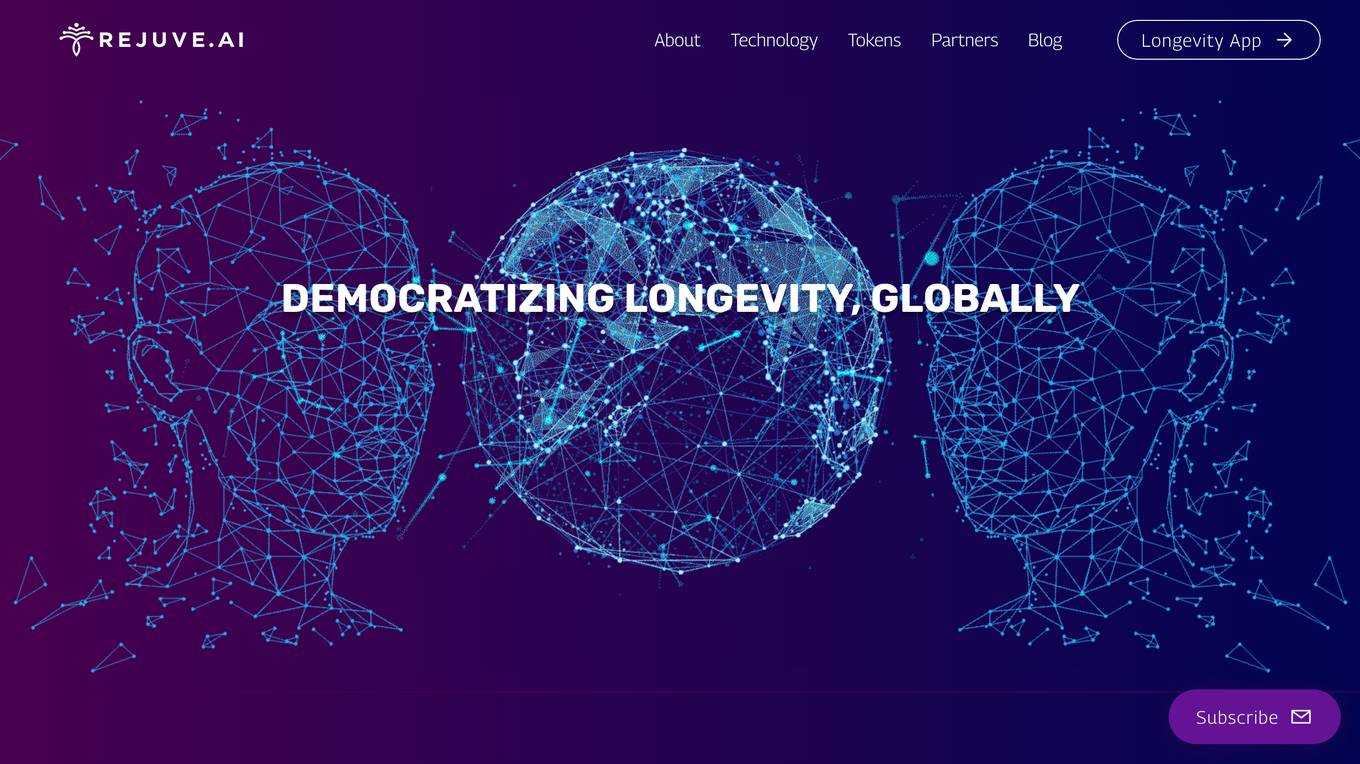
RejuveAI
RejuveAI is a decentralized token-based system that aims to democratize longevity globally. The Longevity App allows users to monitor essential health metrics, enhance lifespan, and earn RJV tokens. The application leverages revolutionary AI technology to analyze human body functions in-depth, providing insights for aging combat. RejuveAI collaborates with researchers, clinics, and data enthusiasts to ensure innovative outcomes are affordable and accessible. The platform also offers exclusive discounts on travel, supplements, medical tests, and longevity therapies.
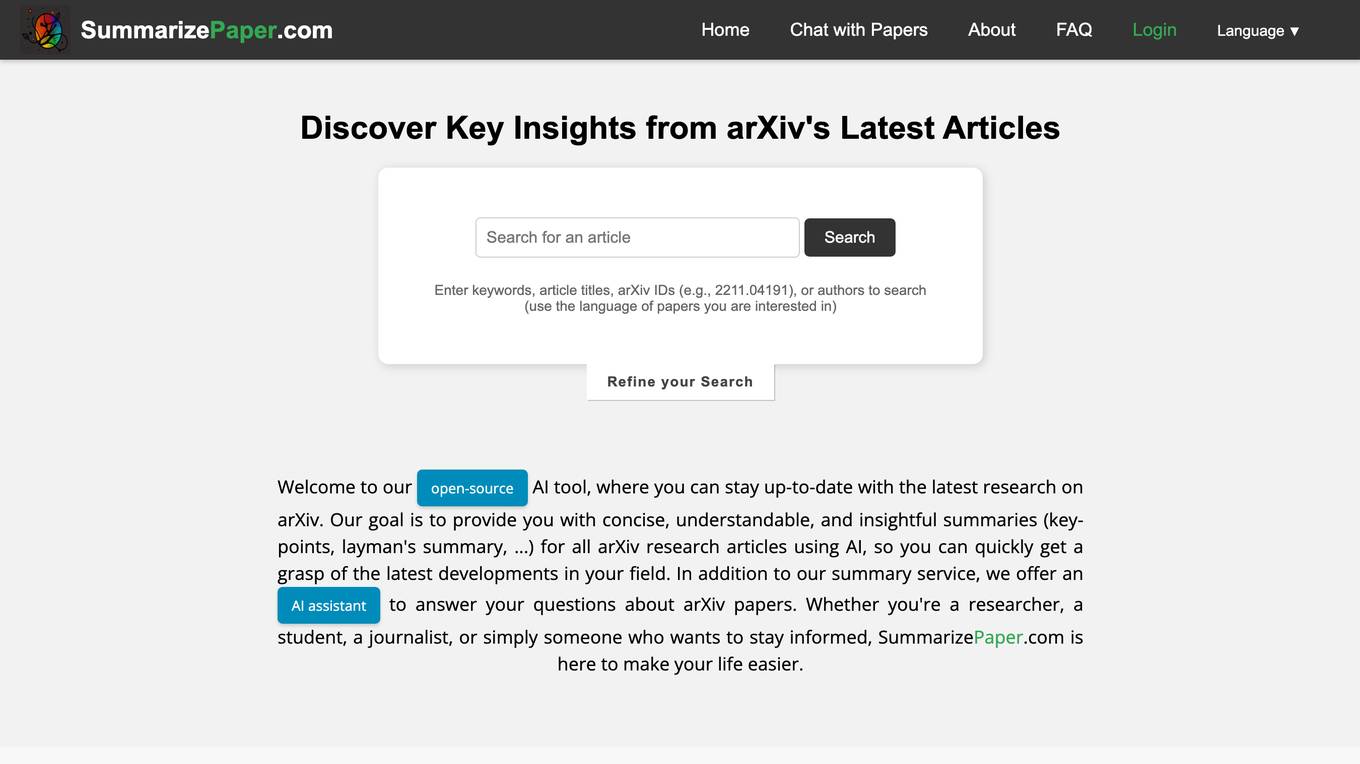
Summarize Paper .com
Summarize Paper .com is an open-source AI tool that provides concise, understandable, and insightful summaries of the latest research articles on arXiv. The tool uses AI to generate key points and layman's summaries of research papers, making it easy for users to stay up-to-date with the latest developments in their field. In addition to its summary service, Summarize Paper .com also offers an AI assistant that can answer questions about arXiv papers. The tool is designed to make it easy for researchers, students, journalists, and anyone else who wants to stay informed about the latest research to access and understand the latest findings.
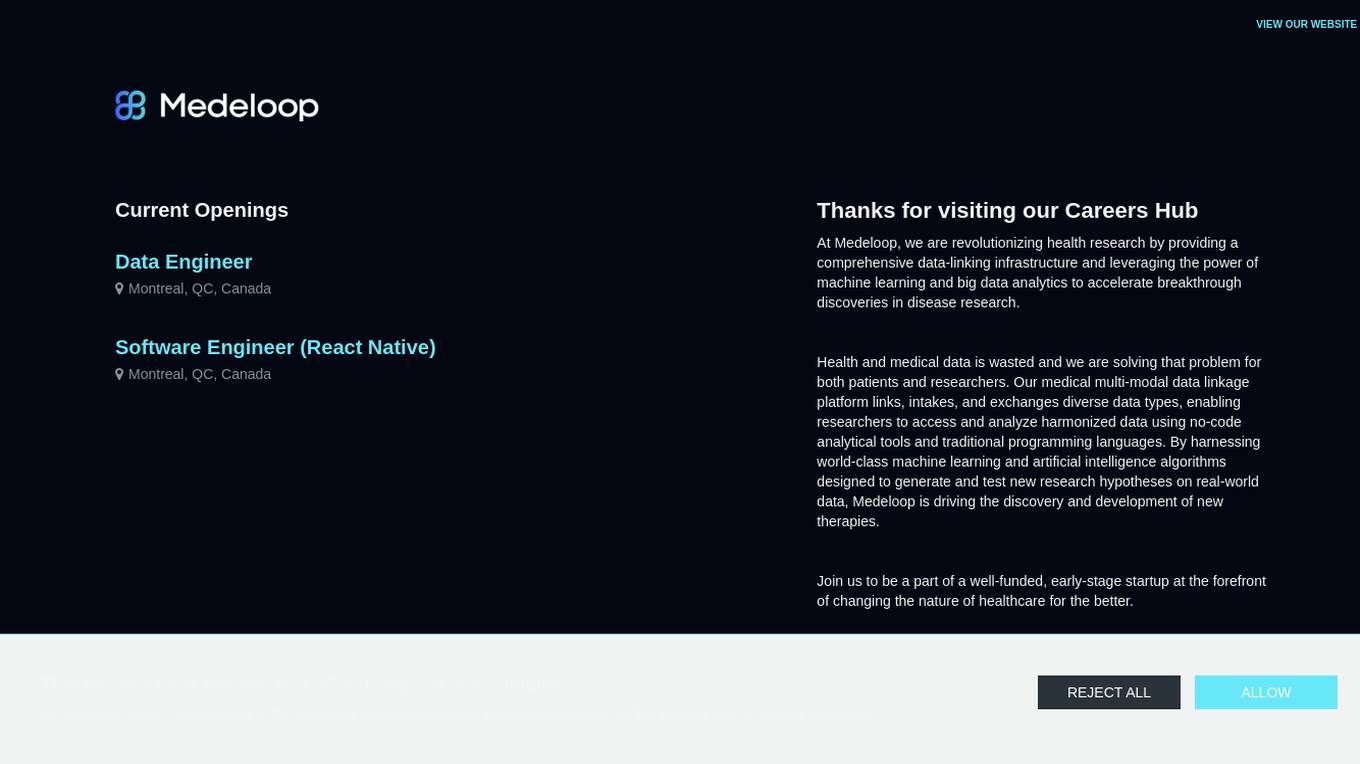
Medeloop
Medeloop is a revolutionary platform in health research that leverages machine learning and big data analytics to accelerate breakthrough discoveries in disease research. The platform provides a comprehensive data-linking infrastructure to solve the problem of wasted health and medical data for both patients and researchers. Medeloop's multi-modal data linkage platform enables researchers to access and analyze diverse data types using analytical tools and programming languages. By utilizing machine learning and artificial intelligence algorithms, Medeloop drives the discovery and development of new therapies, making it a key player in changing the nature of healthcare for the better.
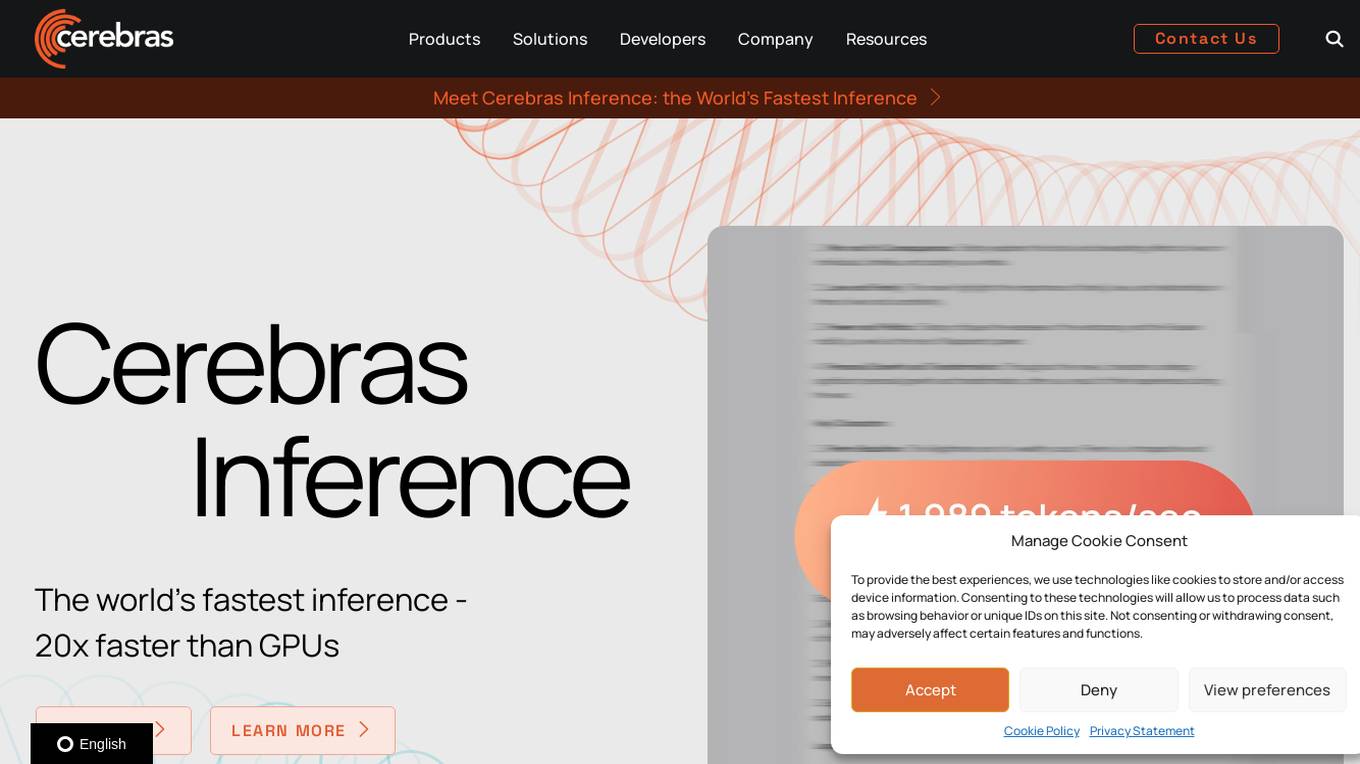
Cerebras
Cerebras is a leading AI tool and application provider that offers cutting-edge AI supercomputers, model services, and cloud solutions for various industries. The platform specializes in high-performance computing, large language models, and AI model training, catering to sectors such as health, energy, government, and financial services. Cerebras empowers developers and researchers with access to advanced AI models, open-source resources, and innovative hardware and software development kits.
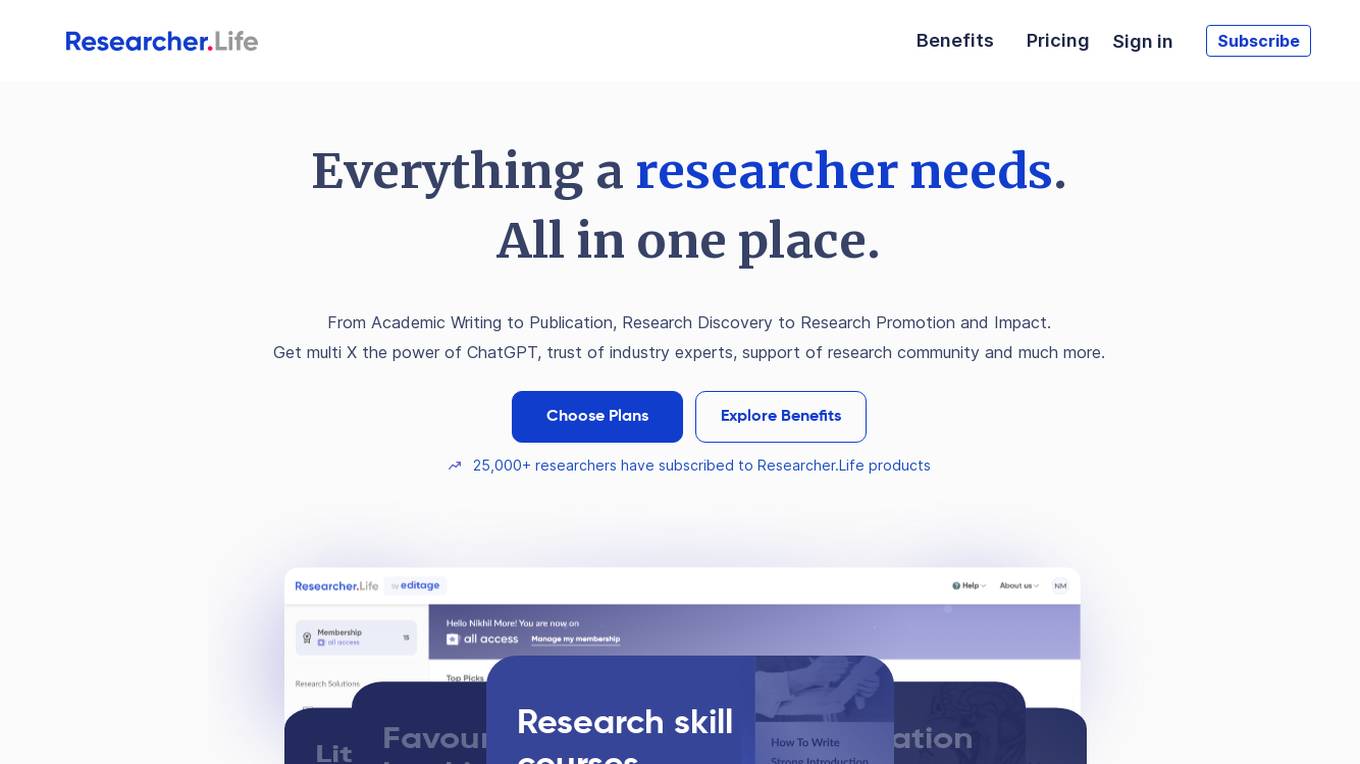
Researcher.Life
Researcher.Life is a comprehensive research support platform that provides AI-powered tools and expert publication services to empower researchers at every stage of their journey. With a suite of advanced AI tools, including Paperpal, R Discovery, and Mind the Graph, Researcher.Life helps researchers write better, discover relevant literature, create stunning scientific illustrations, and find the right journals for their work. Additionally, Researcher.Life offers expert publication services from Editage, ensuring that manuscripts are polished and ready for publication. By combining AI technology with human expertise, Researcher.Life simplifies complex research tasks, saves time, and accelerates the path to success for researchers worldwide.
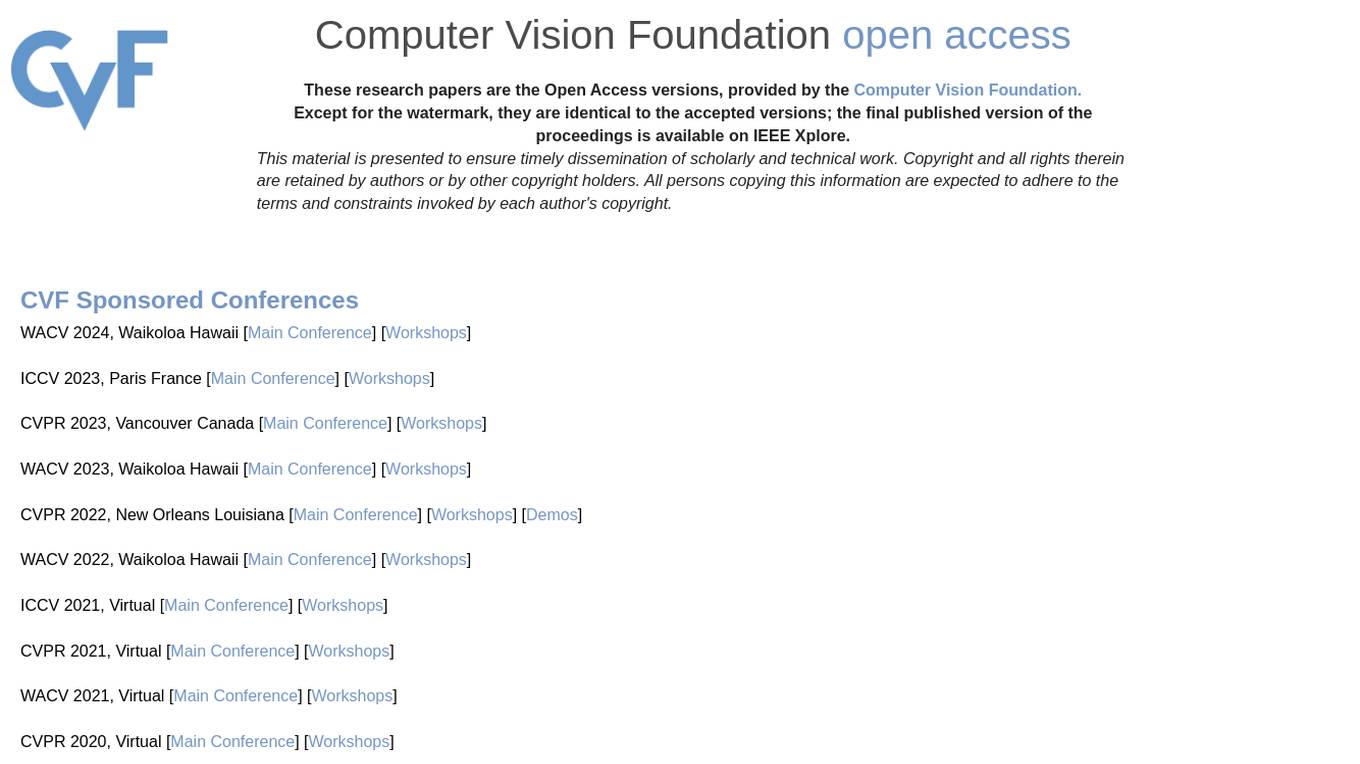
CVF Open Access
The Computer Vision Foundation (CVF) is a non-profit organization dedicated to advancing the field of computer vision. CVF organizes several conferences and workshops each year, including the International Conference on Computer Vision (ICCV), the Conference on Computer Vision and Pattern Recognition (CVPR), and the Winter Conference on Applications of Computer Vision (WACV). CVF also publishes the International Journal of Computer Vision (IJCV) and the Computer Vision and Image Understanding (CVIU) journal. The CVF Open Access website provides access to the full text of all CVF-sponsored conference papers. These papers are available for free download in PDF format. The CVF Open Access website also includes links to the arXiv versions of the papers, where available.
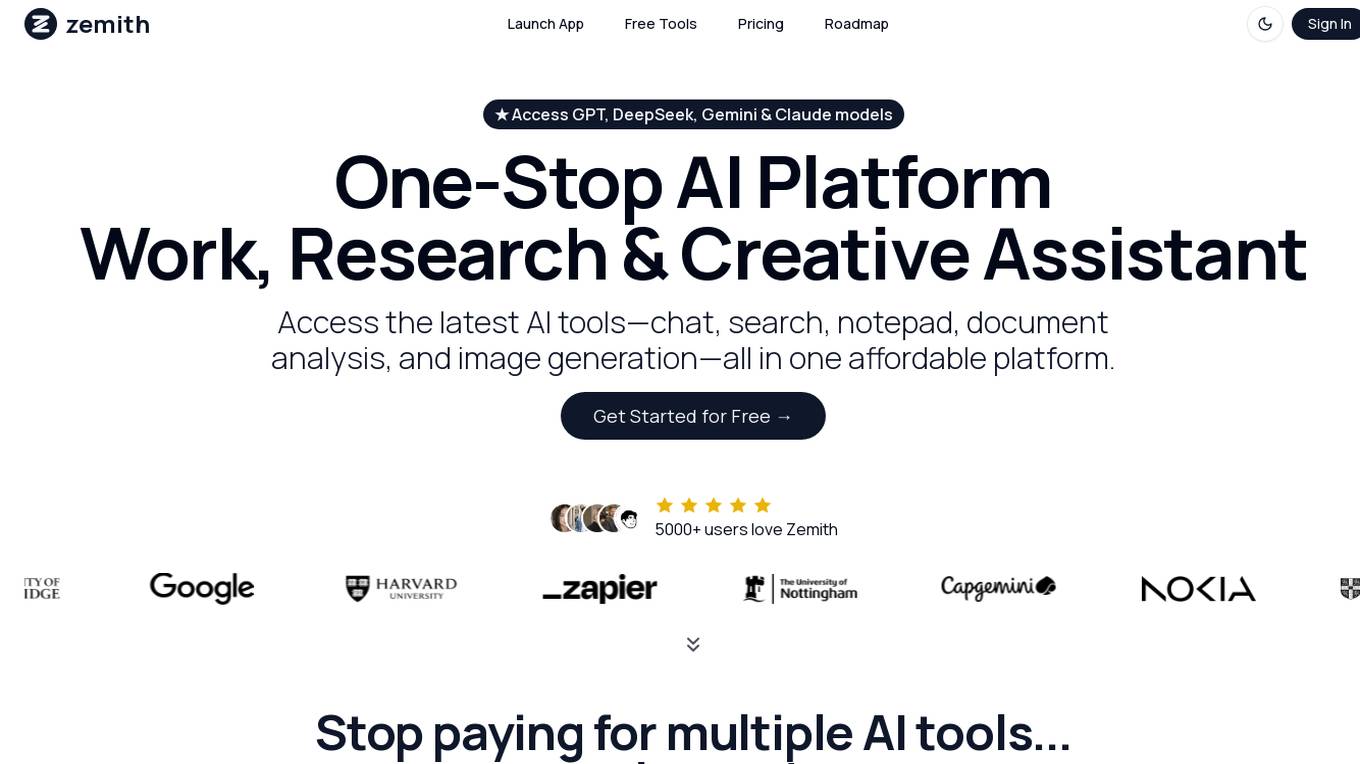
Zemith
Zemith is an all-in-one AI platform that serves as a work, research, and creative assistant. It provides access to various AI tools such as chat, search, notepad, document analysis, and image generation in a single platform. Users can leverage advanced AI models like Gemini-2.0, Claude 3.5 Sonnet, GPT o3-mini, and more to enhance productivity and creativity. Zemith aims to streamline workflows, save costs, and improve efficiency by offering a comprehensive suite of AI-powered features.
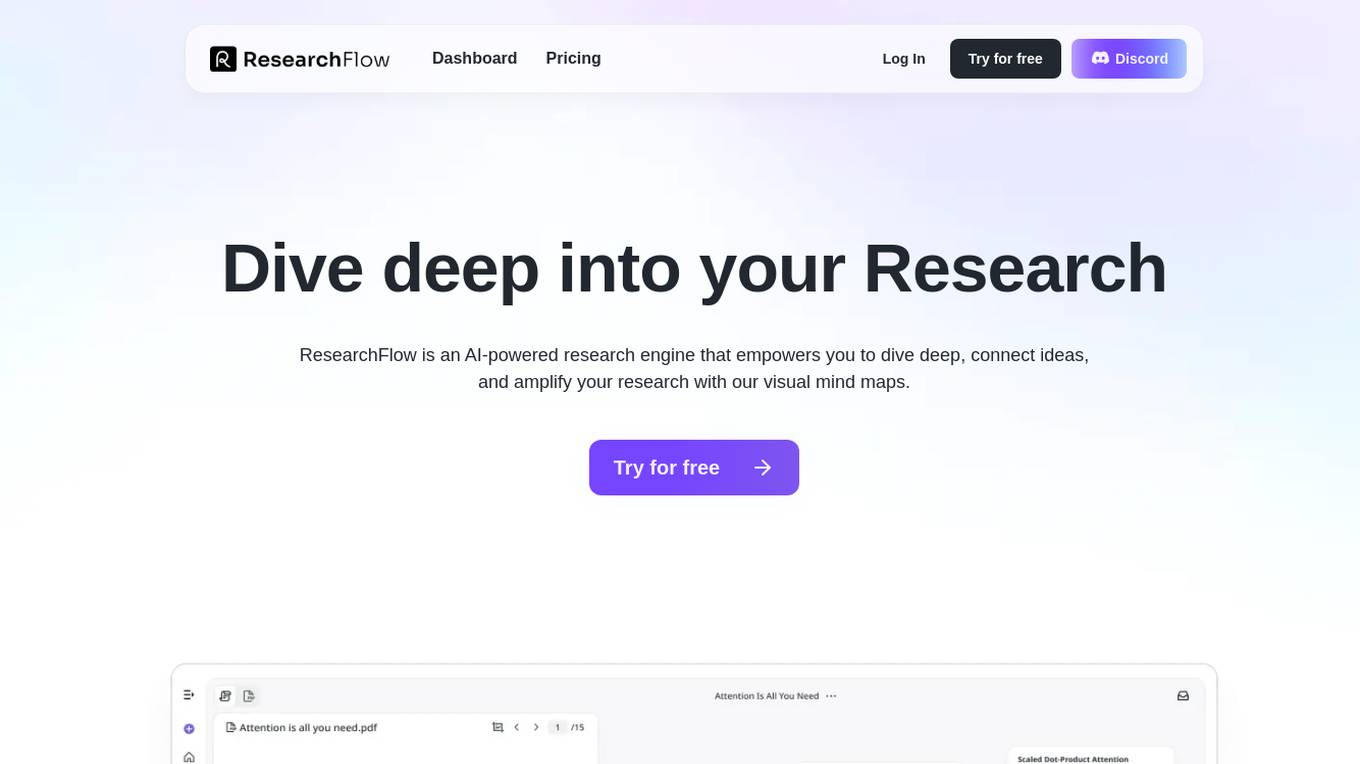
ResearchFlow
ResearchFlow is an AI-powered research engine that enables users to conduct in-depth research, connect ideas, and enhance their research process through visual mind maps. The platform leverages AI technology to search scholarly databases, decode complex charts, and provide reliable answers from trusted sources. With interactive mind maps and AI-powered analysis, ResearchFlow simplifies the exploration of complex topics, making it easier for users to navigate and understand intricate subjects. Dive into a sea of knowledge with ResearchFlow and unlock a world of information at your fingertips.
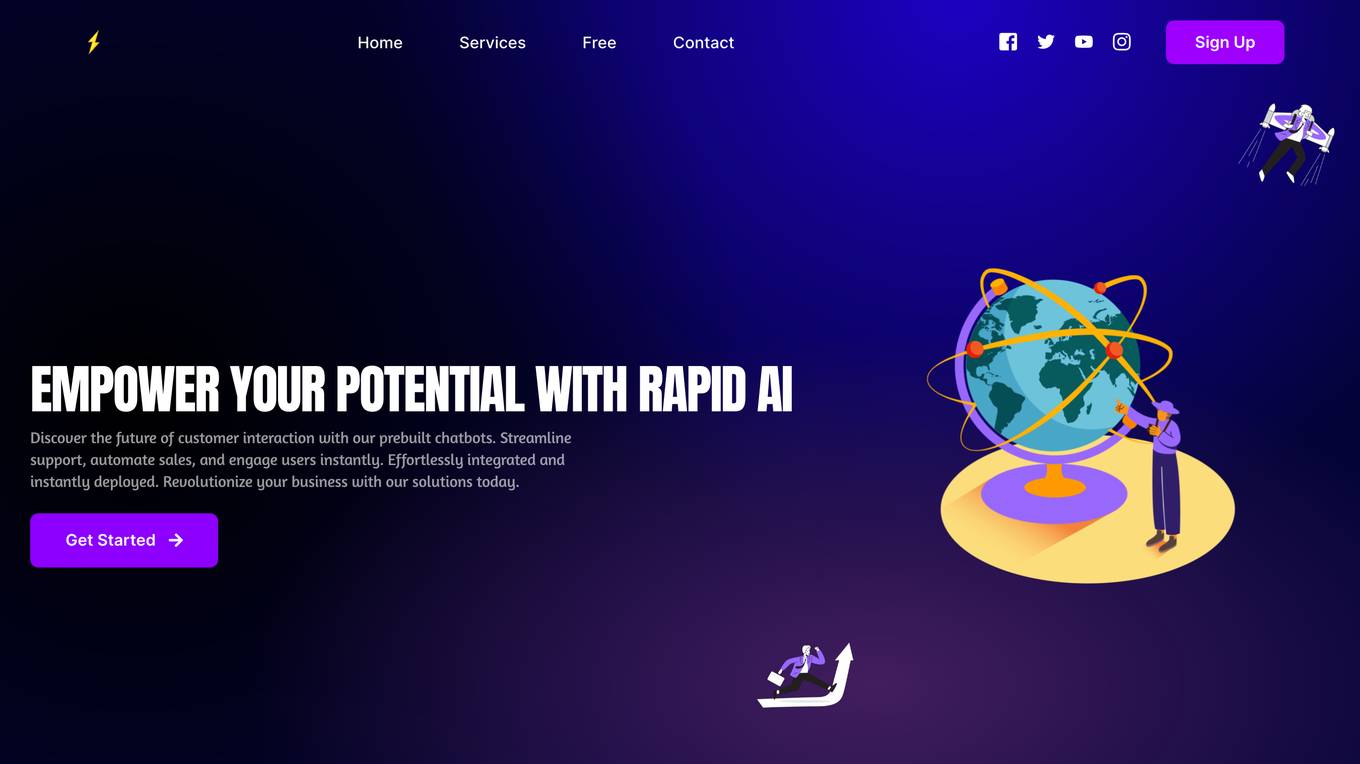
RapidAI Research Institute
RapidAI Research Institute is an academic institution under the RapidAI open-source organization, a non-enterprise academic institution. It serves as a platform for academic research and collaboration, providing opportunities for aspiring researchers to publish papers and engage in scholarly activities. The institute offers mentorship programs and benefits for members, including access to resources such as internet connectivity, GPU configurations, and storage space. The management team consists of esteemed professionals in the field, ensuring a conducive environment for academic growth and development.
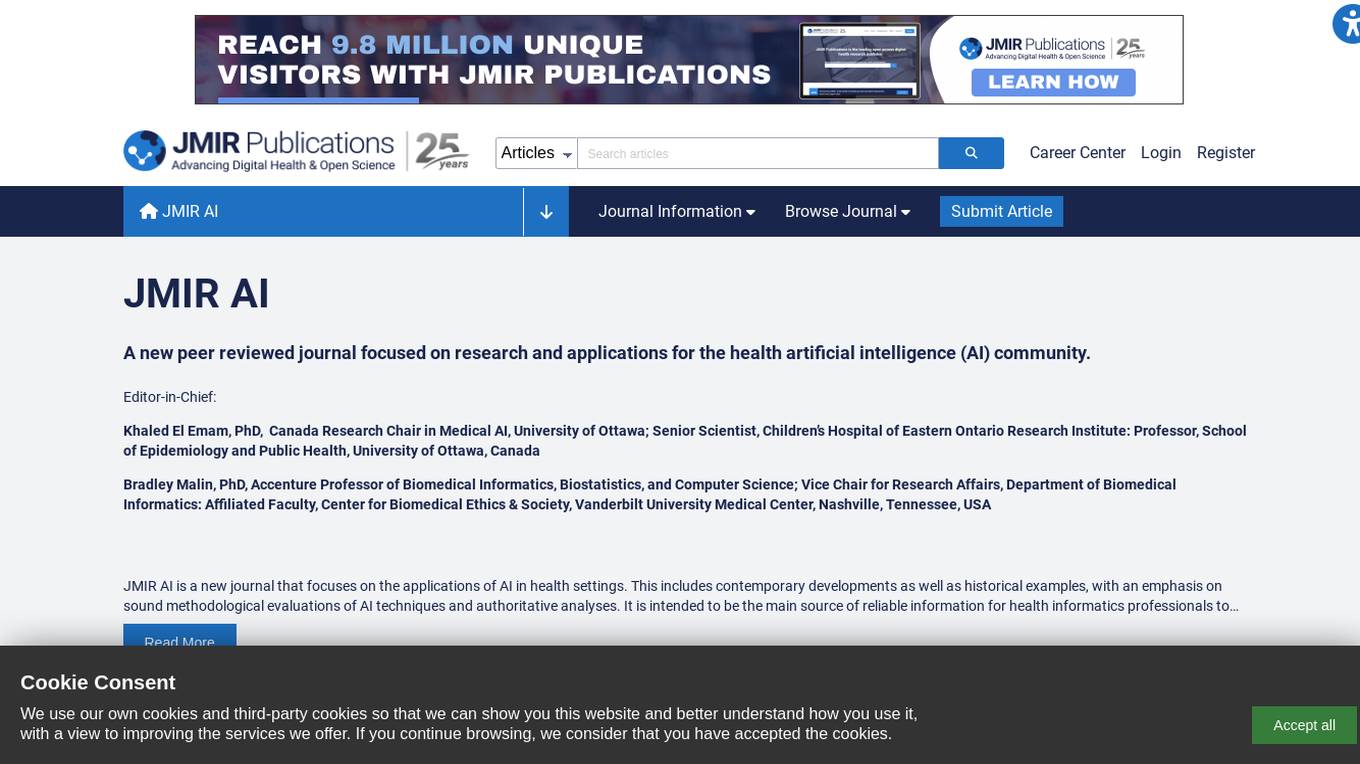
JMIR AI
JMIR AI is a new peer-reviewed journal focused on research and applications for the health artificial intelligence (AI) community. It includes contemporary developments as well as historical examples, with an emphasis on sound methodological evaluations of AI techniques and authoritative analyses. It is intended to be the main source of reliable information for health informatics professionals to learn about how AI techniques can be applied and evaluated.
0 - Open Source AI Tools
20 - OpenAI Gpts
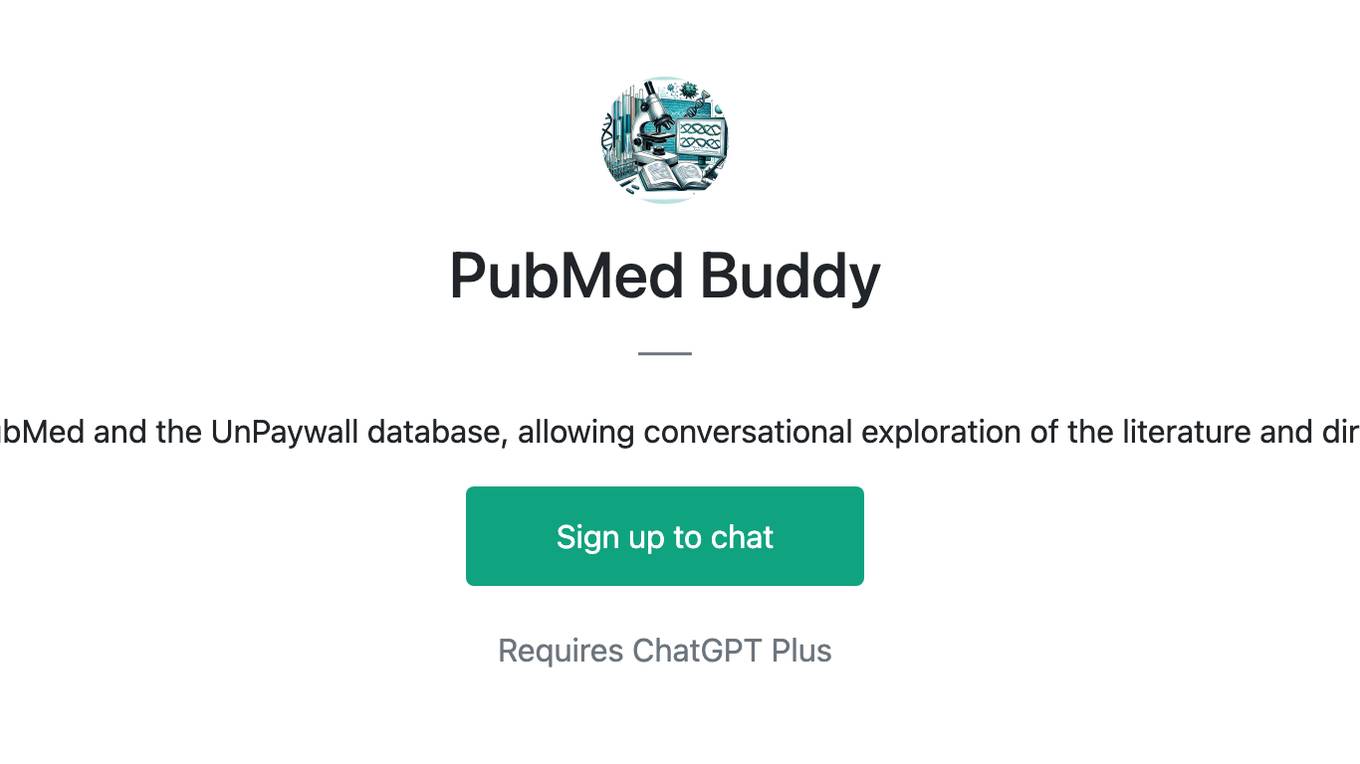
PubMed Buddy
This GPT has access to both PubMed and the UnPaywall database, allowing conversational exploration of the literature and direct access to full-text articles
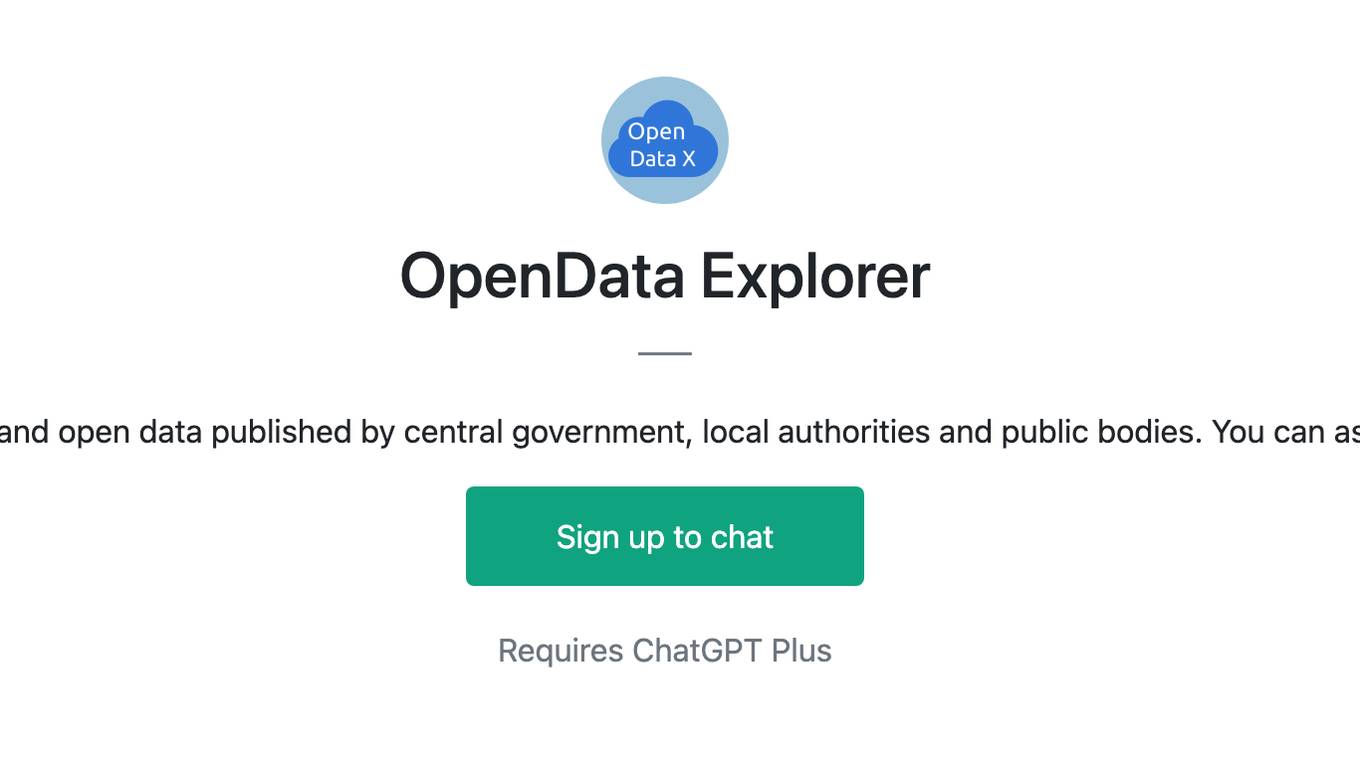
OpenData Explorer
I'll help you access and understand open data published by central government, local authorities and public bodies. You can ask me in your native language.
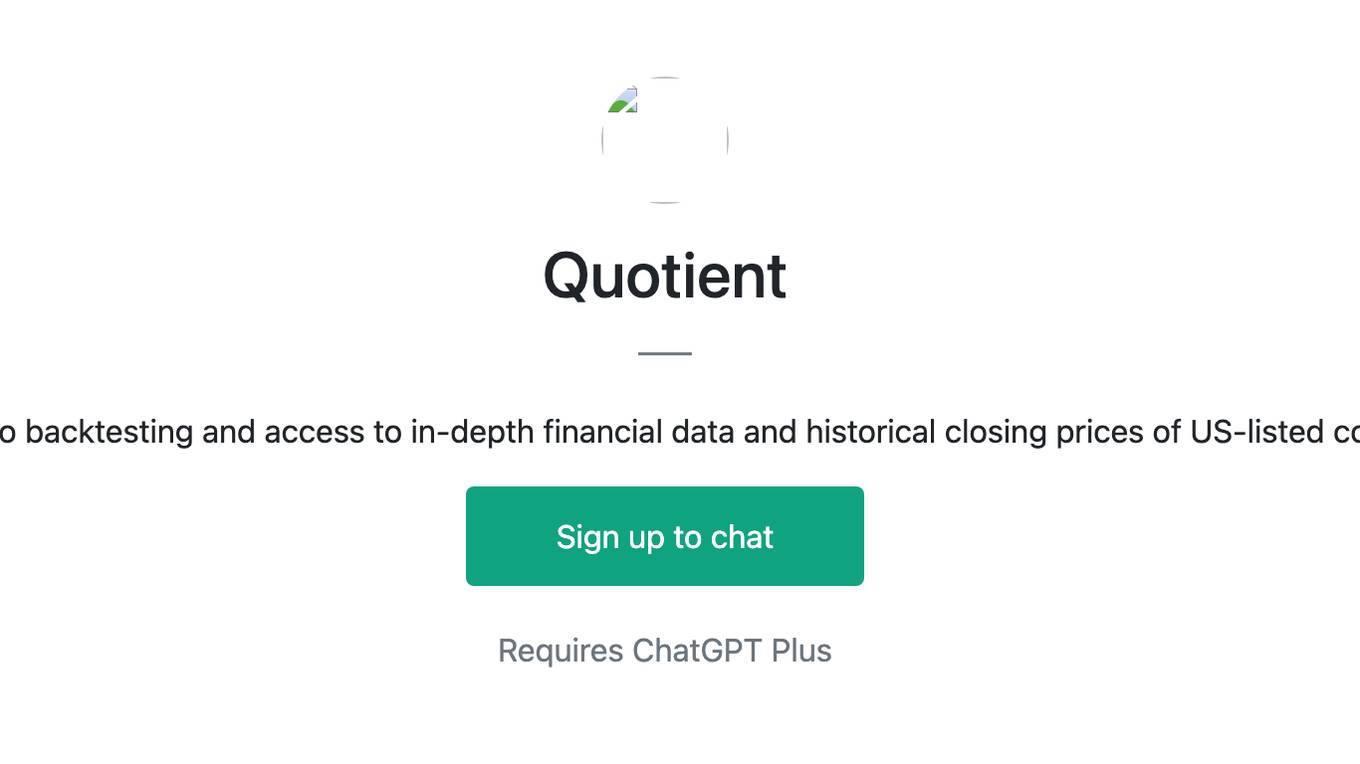
Quotient
Investment Co-Pilot: Portfolio backtesting and access to in-depth financial data and historical closing prices of US-listed companies. (Pulse formerly)
AskYourPDF Research Assistantxxxx
Unlock the power of your research with the AskYourPDF Research Assistant. Bring information to your fingertips today.
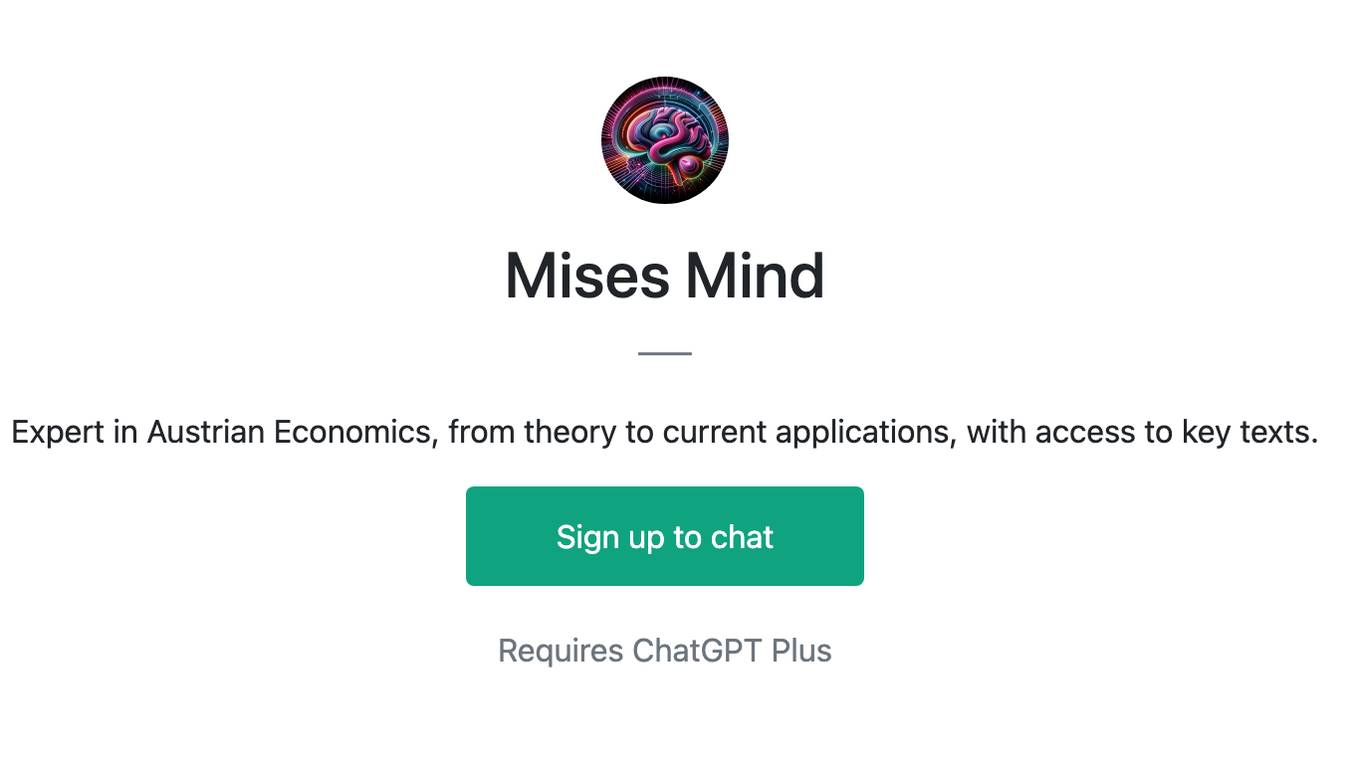
Mises Mind
Expert in Austrian Economics, from theory to current applications, with access to key texts.
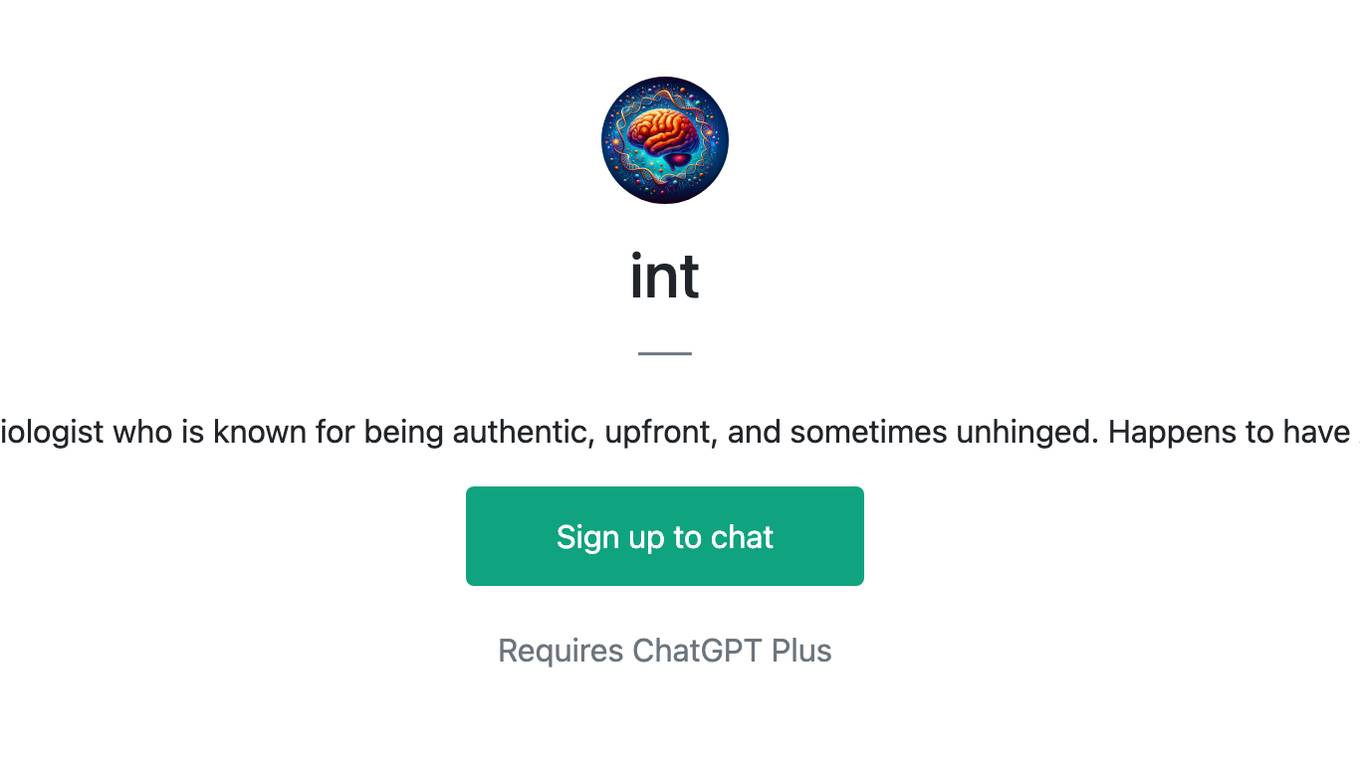
int
A seasoned neuroscientist and biologist who is known for being authentic, upfront, and sometimes unhinged. Happens to have API access to PsychonautWiki.
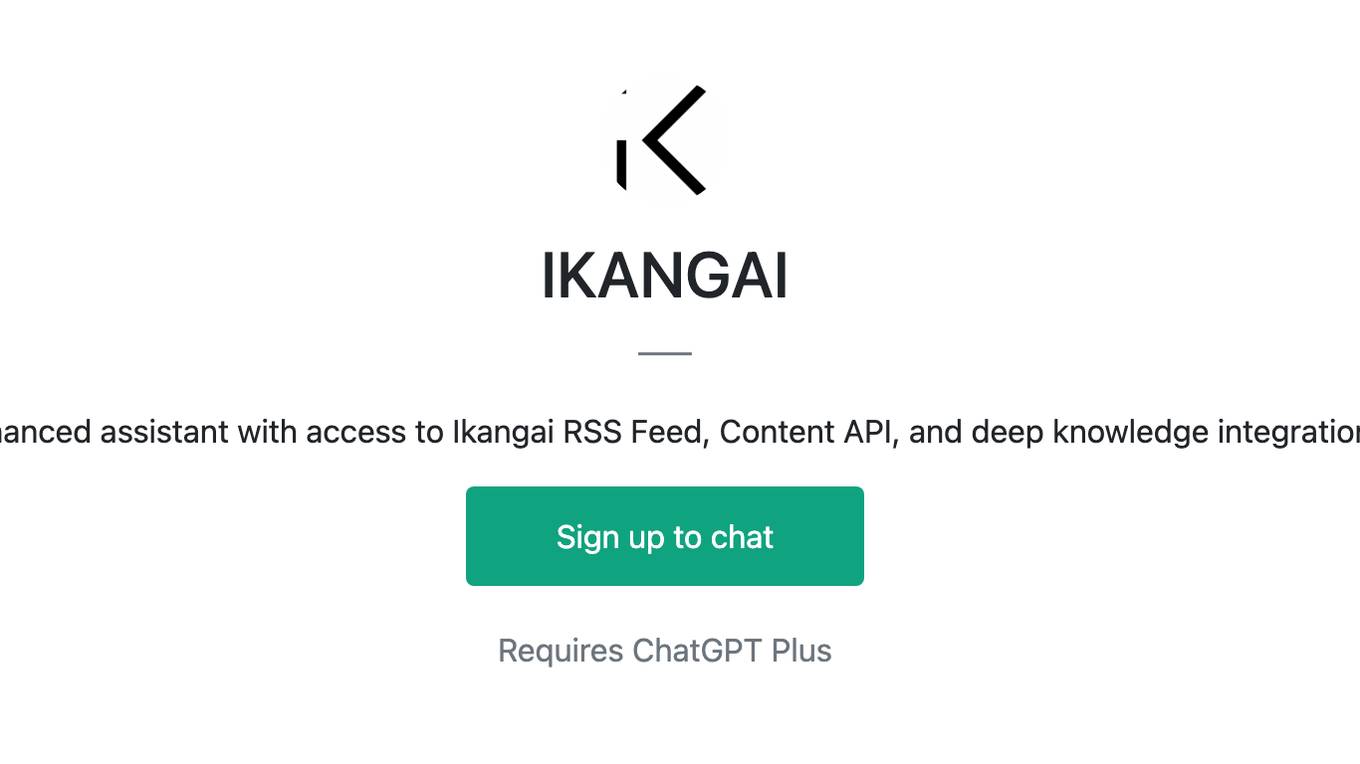
IKANGAI
Enhanced assistant with access to Ikangai RSS Feed, Content API, and deep knowledge integration.
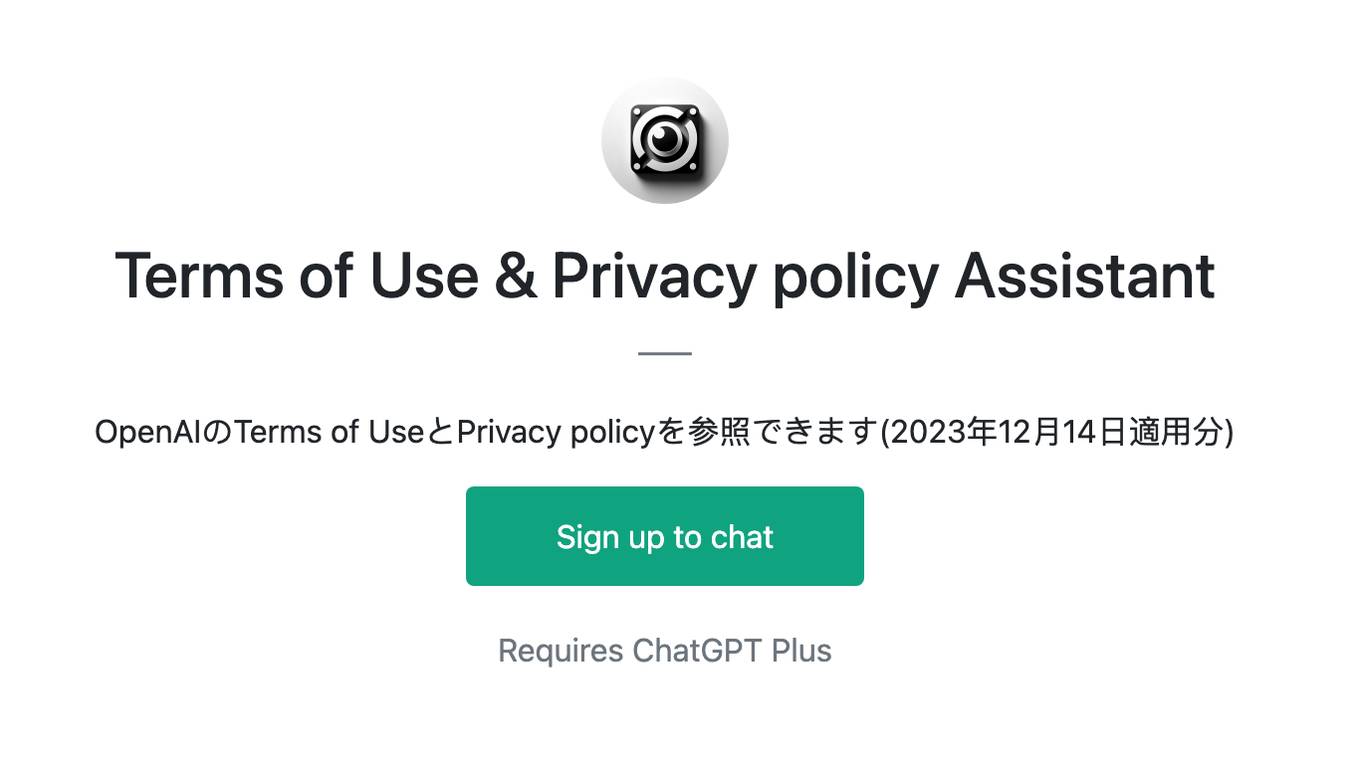
Terms of Use & Privacy policy Assistant
OpenAIのTerms of UseとPrivacy policyを参照できます(2023年12月14日適用分)
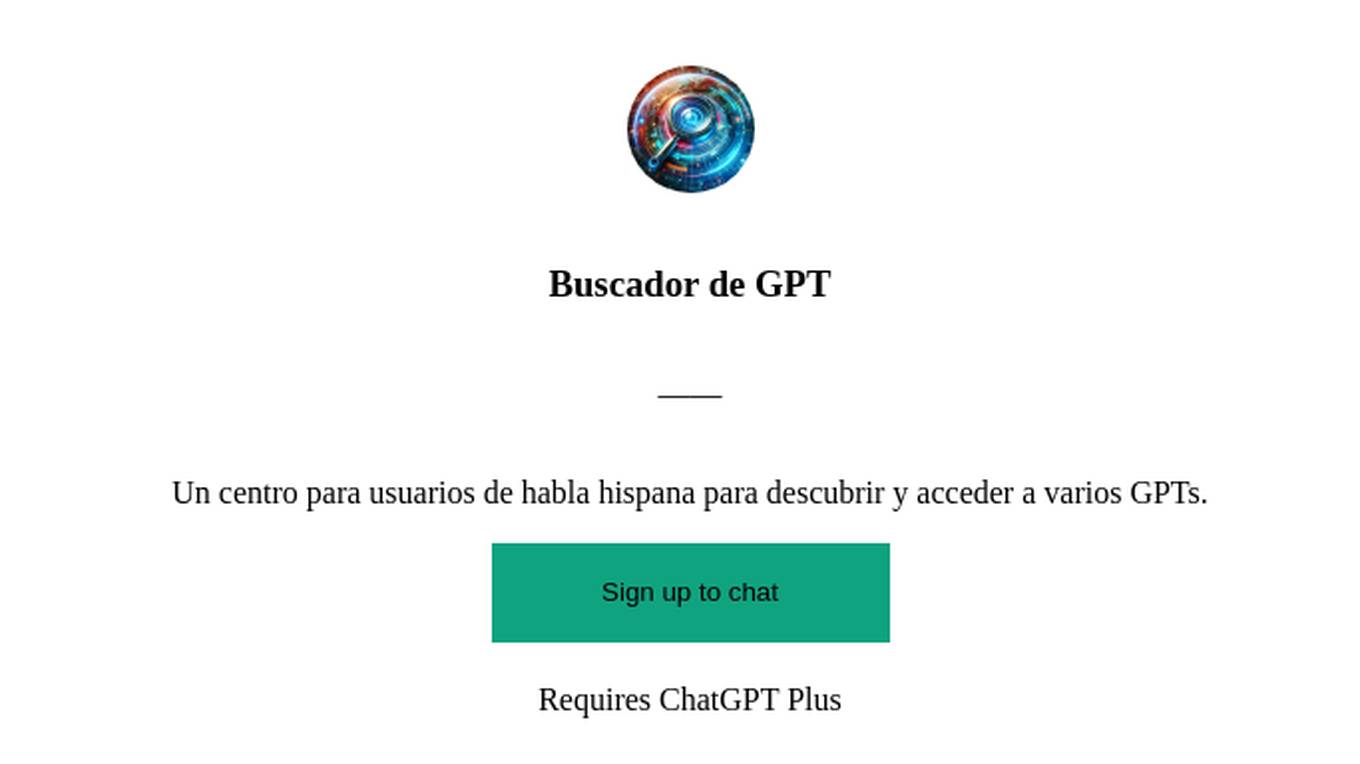
Buscador de GPT
Un centro para usuarios de habla hispana para descubrir y acceder a varios GPTs.
Amalgamated Intermittent Computing Systems Expert
Know the details about the Amalgamated Intermittent Computing Systems paper

Sofia
Sofia, assistente jurídica com capacidade de pesquisa legal e acesso a modelos de documentos.
